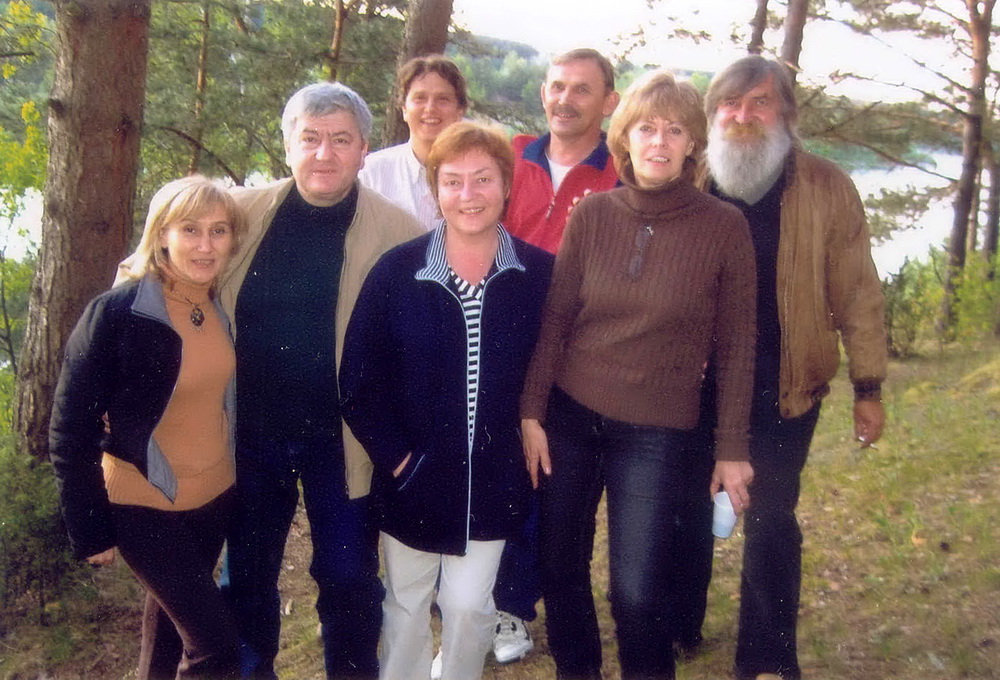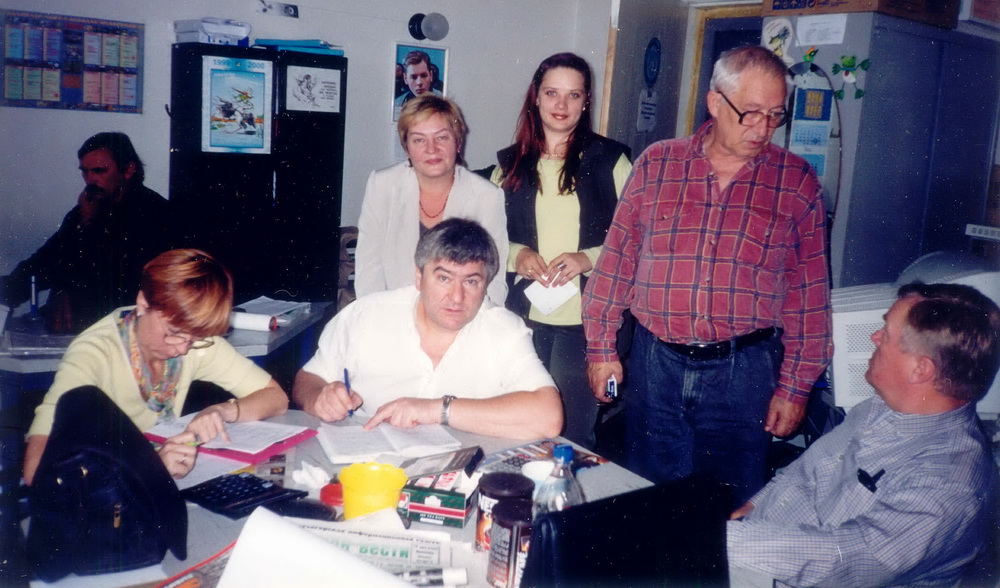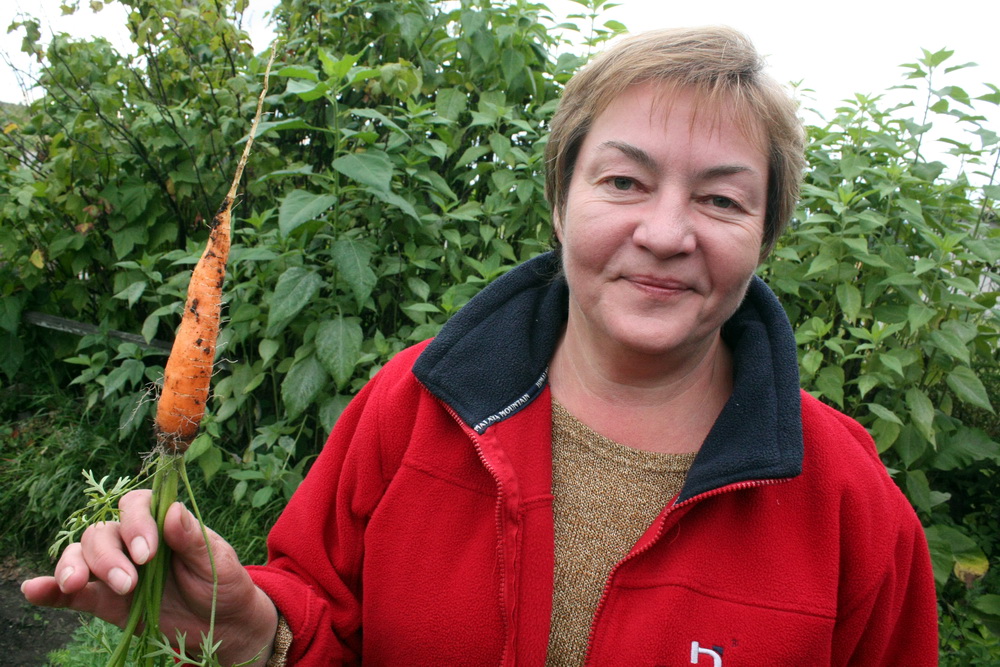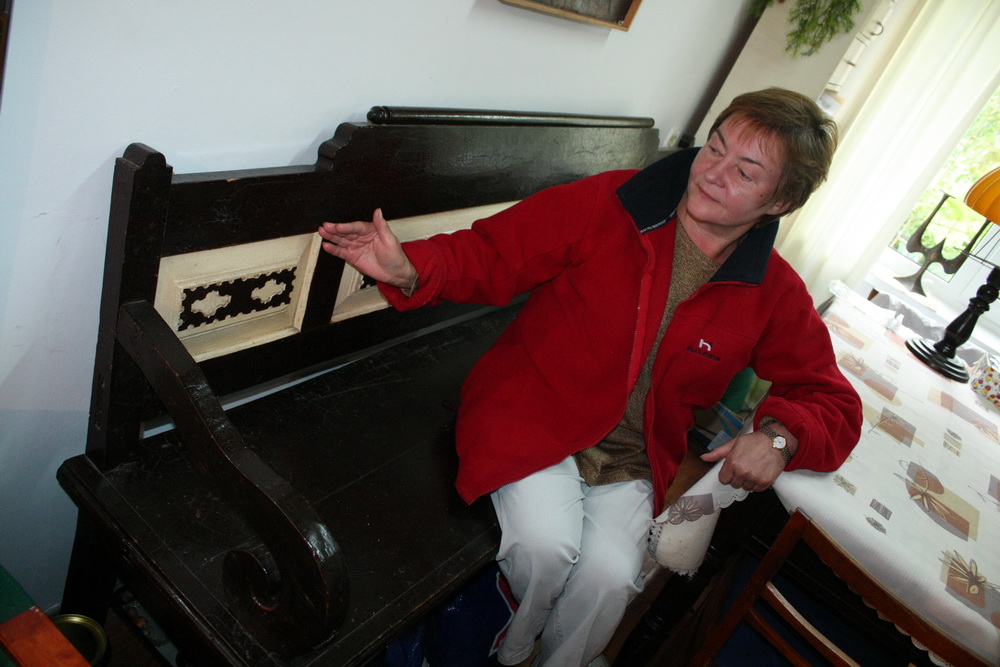Zhanna Litvina: About ’17 Years on the Throne’, the BAJ ‘Family’, and Her Birthday Shared with Lukashenka…
Before the interview, some colleagues teased me, “Ask her when the last time she interviewed someone was.” Like, she is the chairperson of a journalist organization but she has forgotten what it is like to be a journalist. However, answering this provocative question, Zhanna Mikalajeuna began earnestly recall her talks with Heroes of Socialist Labor, chairpersons of kolkhozes etc. It was so realistic that her answers have not even fit in the final version of this article.
BAJ’s PERSONAL RECORD
Zhanna Litvina was born in the village of Vadapoj near Minsk. She graduated from the journalism department of the Belarusian State University. From 1976 to 1994, she worked at the State Television and Radio; there, her last position was the chief editor of Belaruskaja Maladziozhnaja radio station. From 1994 to 1999, she led the Minsk bureau of Radio Liberty. She founded Radio Racyja. In 1995, she founded the FM station 101.2, which lasted a little over a year and was closed down by the authorities. In 1995, she founded the Belarusian Association of Journalists which she leads to date.
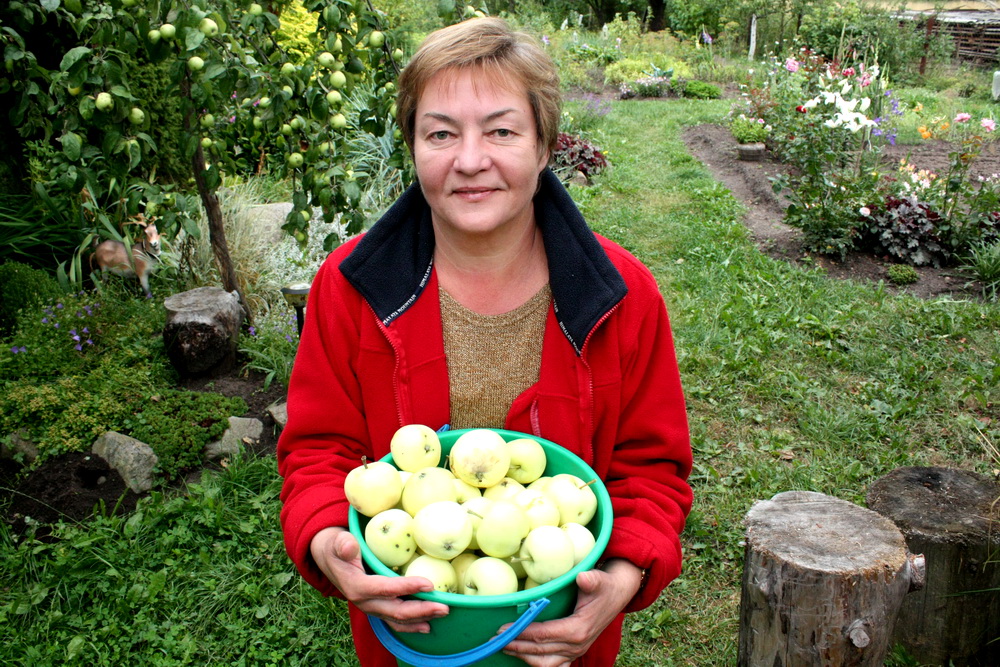
“Only a selected few are trusted today with the live broadcast”
After the journalism department, you were employed by the State radio. Wasn’t the young girl worried that the entire country would hear her but she wouldn’t be recognized on the streets?!
Zhanna Litvina: The radio journalist cannot become a star… I felt totally self-sufficient in the environment where I was known. Before it was closed, Belaruskaja Maladziozhnaja radio station was at its finest hour. We were known to all politicians, public figures… Because each of them had an opportunity to get on the air. What we did not have, it was the censorship’s obstacles. This got us burned.
Zianon Pazniak came to us. Live broadcast… He was not welcome at any editorial team. But we got him on the air, probably, due to some journalistic insolence… And many things were forgiven to us. Incidentally, we anchored the very first live broadcast with Ihar Hancharuk (later, he headed Stalitsa radio station for some time and now he does Topical Interview show on television from time to time). It was an ordinary broadcast – it was intentionally scheduled for the very late evening so that as few people as possible could hear it. The text got vetted in all offices, it was written down to the last comma… Already after, we were told that the director of the program directorate (I won’t even tell his name) had come to the editing control room, from where the show was broadcast and said: “If something is wrong – mix it!”
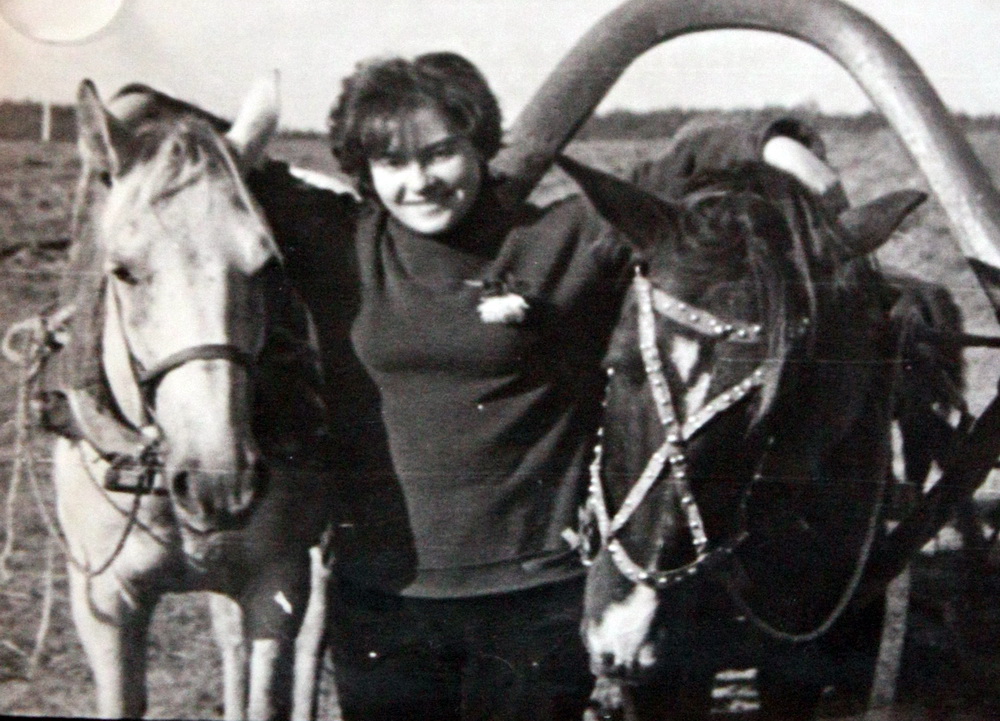
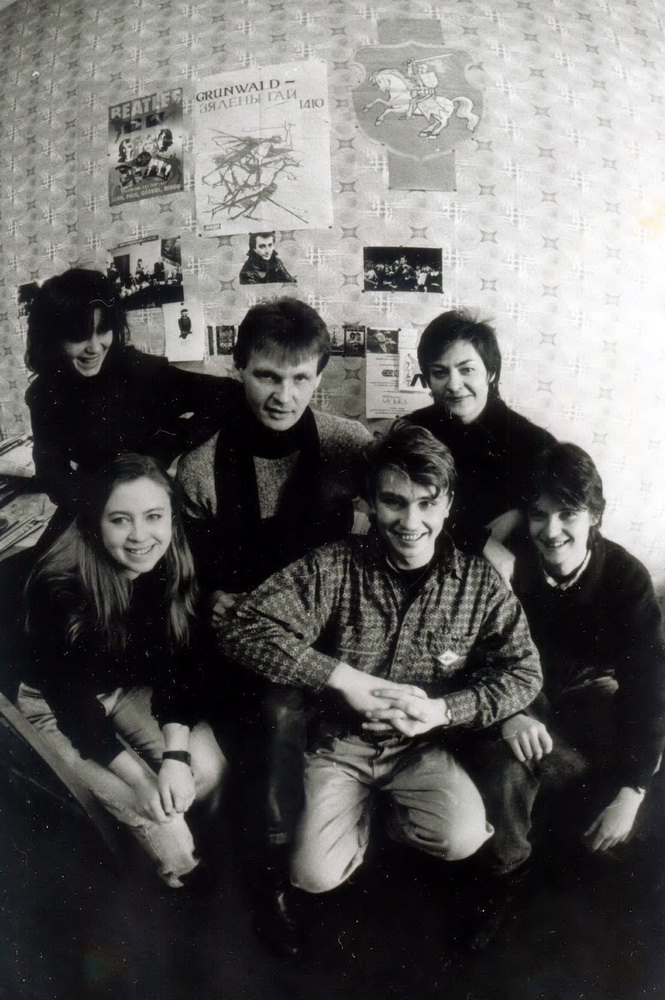
See, how much time passed, and Volski was recently “cut down” on tut.by in the exactly same way. How have you reacted to it? Has it been civilized?
Zhanna Litvina: You know, if over 20 years ago they had shut down us, pioneers, who were gasping for the live broadcast, it would have had some logic; we could blame it on Communists, on backwardness. And the manifestations of censorship today… I have something to compare it with, and I’m just in shock. Earlier, we had live CNN inserts on the Belarusian television, and Radio 101.2 rebroadcasted BBC and Deutsche Welle live… Now, it all has been destroyed. Only a selected few are trusted today with the live broadcast. Today, the censorship is much harsher than the one which existed during the Perestroika.
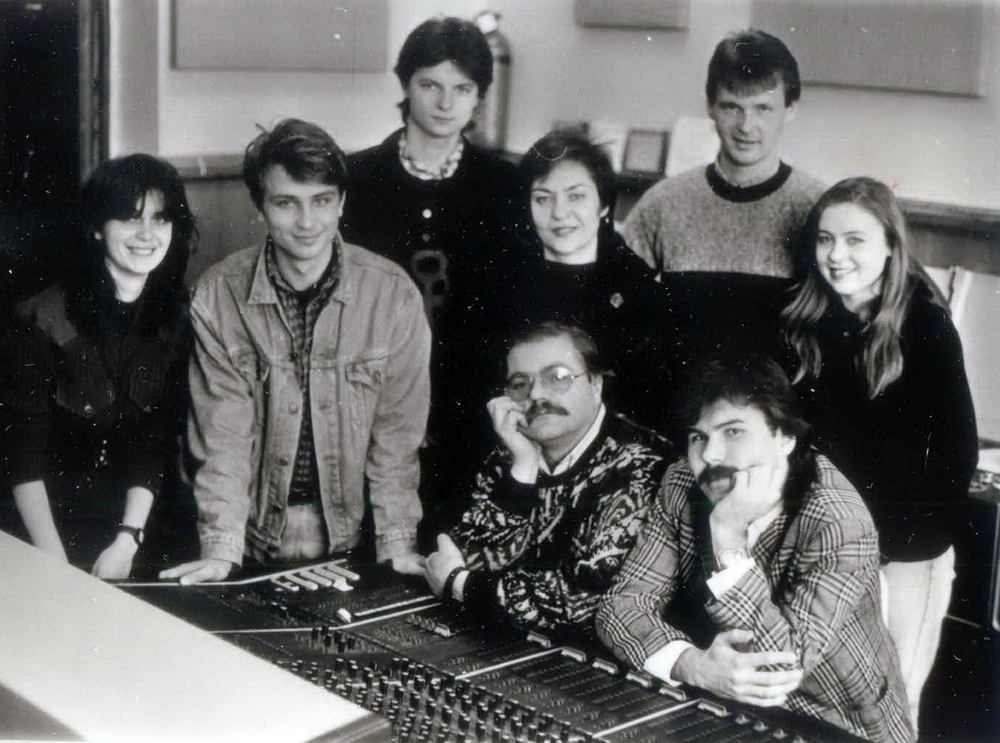
And we look at tut.by as a private business? Why should Yury Ziser risk his own business so that Volski could laugh at Jarmoshyna? Can we generally regard our media as a private business?
Zhanna Litvina: We have no private business in mass media. Speaking of the radio, the frequencies are in public property, and they can be taken back at any moment. I would not also call the newspaper a private business as, during the last 12 years, we are witnessing the gradual destruction of the institution of independent media. The editors were different back then as well… By the way, there is an interesting phenomenon today: the newspapers’ editors do not write for their newspapers.
Did you really sit at the microphone at Belaruskaja Maladziozhnaja?
Zhanna Litvina: Initially, yes. But, at some point, I discontinued. Because we had a super freedom in the editorial office. However, every Tuesday the Calvary came – the planning meetings began at 10 am. Hienadz Buraukin already left at that time, and the State Television and Radio were headed by Aliaksandr Staliarou. And every Tuesday I was called up and chastised mercilessly. We aired a Saturday morning program at 9.15 am, a very popular one, and I was criticized every time — “why this, why not that”!.. To sit at the microphone, I must be the same as my team. But it could soon lead to the full destruction of the editorial team. I had to act as a defender. It seemed to me that it was more important than to sit at the microphone.
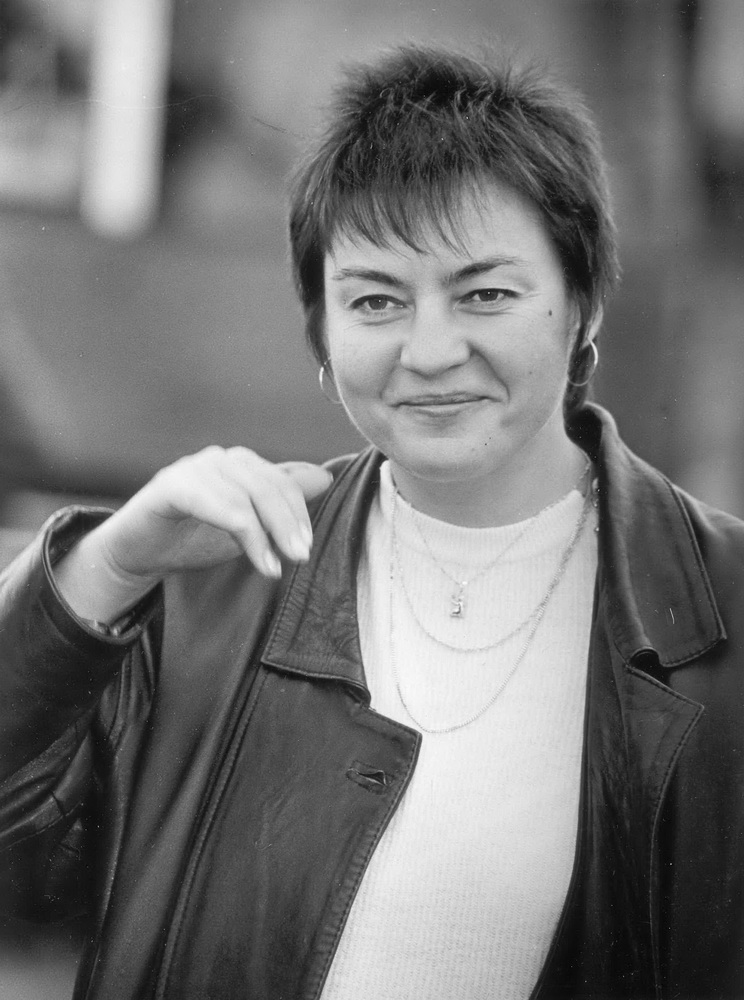
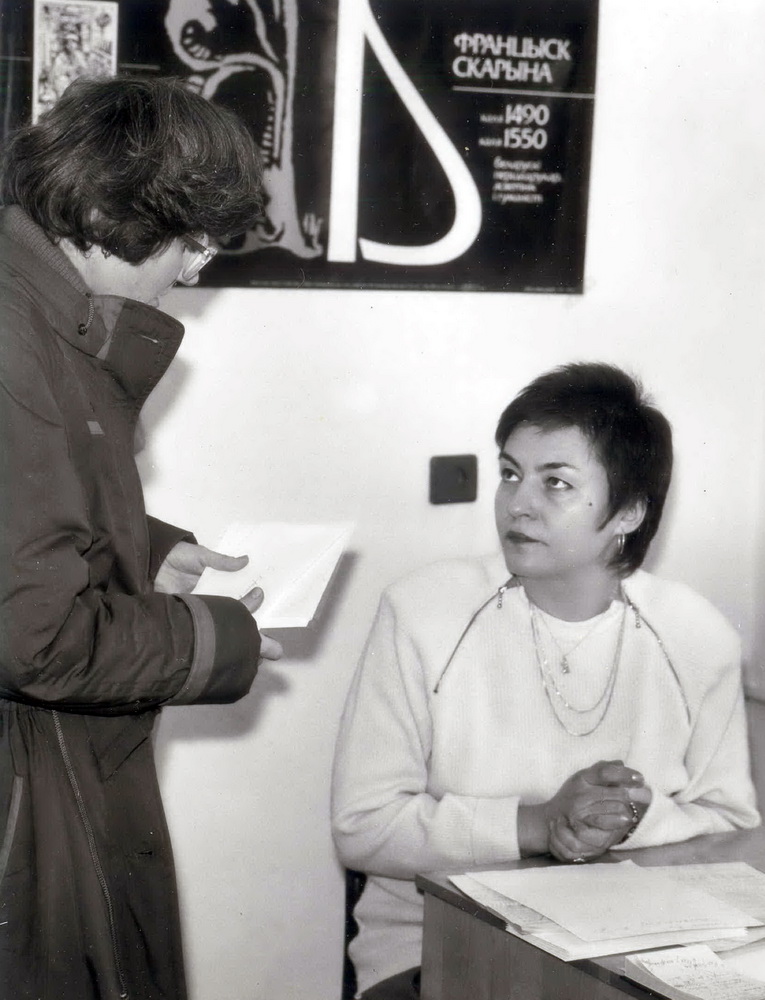
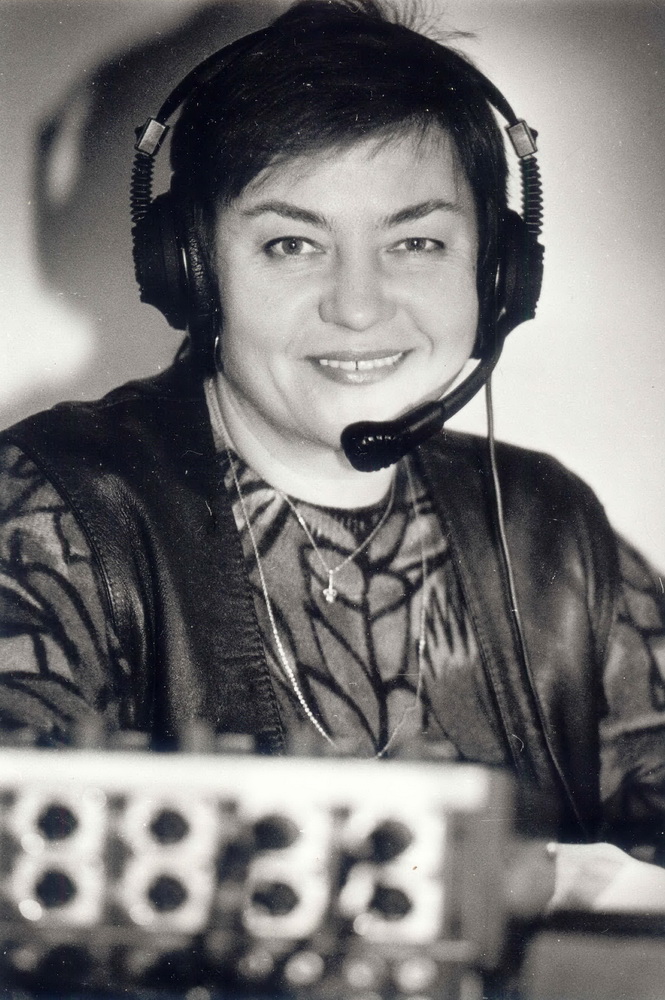
Sure, then you could not tell, “They did it behind my back”.
Zhanna Litvina: I never said that! The preparation for each planning meeting was a search for justifications: why the journalists said this and not that on the air. During the planning meeting, many colleagues did not even speak to me in the presence of the management. But when the planning meetings was over, they used to approach me and express words of support. But they could not get up and say a word [openly]…
“Aliaksandr Ryhoravich was spotlighted, with focus on his hair”
But how did you manage to invite Pazniak to the State radio?
Zhanna Litvina: It should be borne in mind that Pazniak was then a member of parliament, and it gave us the right to invite him. His every visit was a stress. I recall how I was dragged to the program directorate ahead of one of his appearances and scolded, “this BPF again!” The trick was that we submitted the microphone folder where we indicated the name of the invited person and the main topic of conversation. And then, the air was the air: people said what they said.
Although, in the case of Zianon, his very invitation on the air was already a challenge and a serious signal to the management. I come back from the boss all so desolate, then Zianon Stanislavavich arrives, we brew him coffee… And here Pazniak delivers a monologue about the corruption of journalists etc. And I look at him and think, a couple of minutes more, and I will cry from resentment…
Incidentally, Aliaksandr Ryhoravich Lukashenka was one of the frequent guests of the live broadcast. When a planned guest failed to arrive, we always knew that we could call Lukashenka, and he would come and speak with ease on any topic. A person who talks openly about anything – this is a godsend for a radio journalist! When we celebrated the 30th anniversary of Belaruskaja Maladziozhnaja, Aliaksandr Ryhoravich was also present at the anniversary party. The most amazing thing is that, after the election campaign approached, all pictures with guests on them, including him, disappeared from my office.
What was your relationship then?
Zhanna Litvina: Absolutely friendly. After the reform of the State Television and Radio and its transformation in the Belarusian Television and Radio Company, as I remember, there was a ceremony of presentation of certificates to the candidates for the president. Before that, Aliaksandr Dabravolski came to my office and brought me the ID of the election agent of Stanislau Shushkievich. After the presentation of the candidates’ certificates, Aliaksandr Ryhoravich saw me, “Oh, Zhanna, come, we are getting together in this room, come to my team!..” I gave it a thought and even did not bother to explain to him that I was already Shushkievich’s election agent. I was greatly honored to be Shushkievich’s election agent alongside Hienadz Buraukin, Volha Ipatava, Stanislau Bahdankievich and the disgraced General Jahorau!..
… I remember that after the draw Lukashenka had the very first live appearance. A few other persons were invited with Shushkievich for live appearances, but Lukashenka was accompanied only by Aliaksandr Fiaduta. The television is a harsh art. Therefore, Aliaksandr Ryhoravich was spotlighted, with focus on his hair. And Fiaduta was seated sideways. Everything was done to make them look unattractive. Kiebich was the main star and the others were blinded and seated in a terribly unaesthetic way. I remember myself saying already during the very first minutes of Lukashenka’s appearance: “People, here is the man who will become the head of state…”
Before the second round, Fiaduta and Sinitsyn were still working upon me, luring to Lukashenka’s side. I even came to the House of Government – the intensity of their offers became unbearable. And I explained to them: yes, my “patron” lost but it was simply impossible for me to change teams. I wonder why such an offer was made to me.
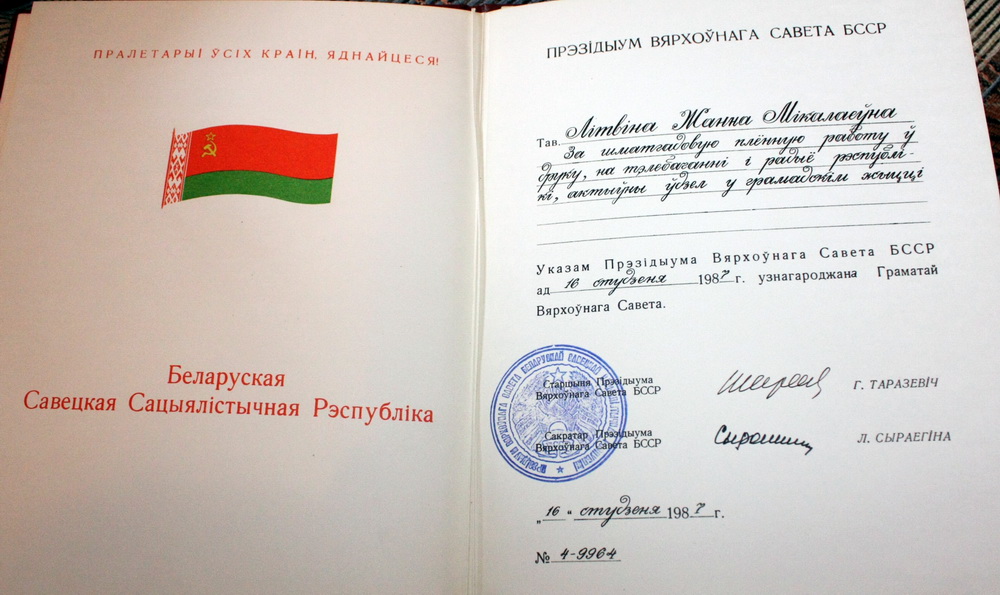
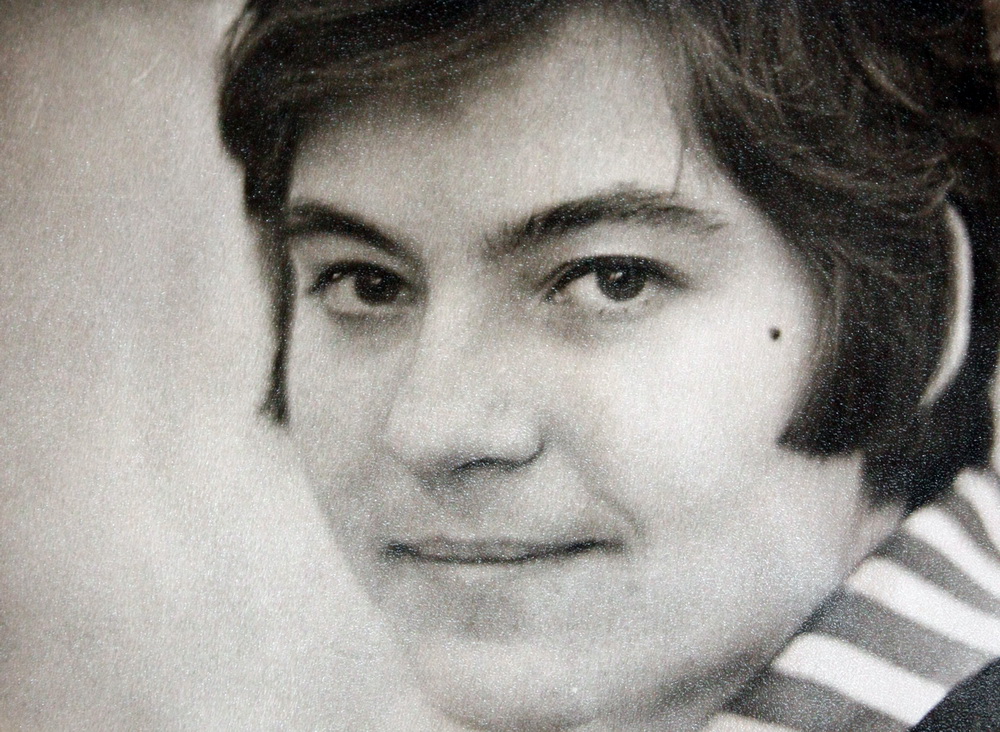
When you ceased to be the editor-in-chief of Belaruskaja Maladziozhnaja, you were left out in the cold for a long time, weren’t you?
Zhanna Litvina: I was then offered to take the position of the editor-in-chief of the youth editorial office at the television – puppets, children’s sports etc. Dziuba was then offered the position of the editor of the Second Channel of the Belarusian radio, and he agreed. At the same time, a condition was put forward that some persons would simply have no place at the Belarusian television and radio. I could not stay there because it would be a betrayal. Five or six months later, just on the New Year’s Eve, I ran into Aliaksandr Staliarou. He asked me how I was doing. I said, “I’m doing fine but there is one thing I can’t forgive you…” He even changed his countenance. And I tell him, “I can’t forgive you that you didn’t kick me off earlier but only now – I would have done much more!” And indeed, during that period of time before the new regime became fully established, there was a time dream came true…
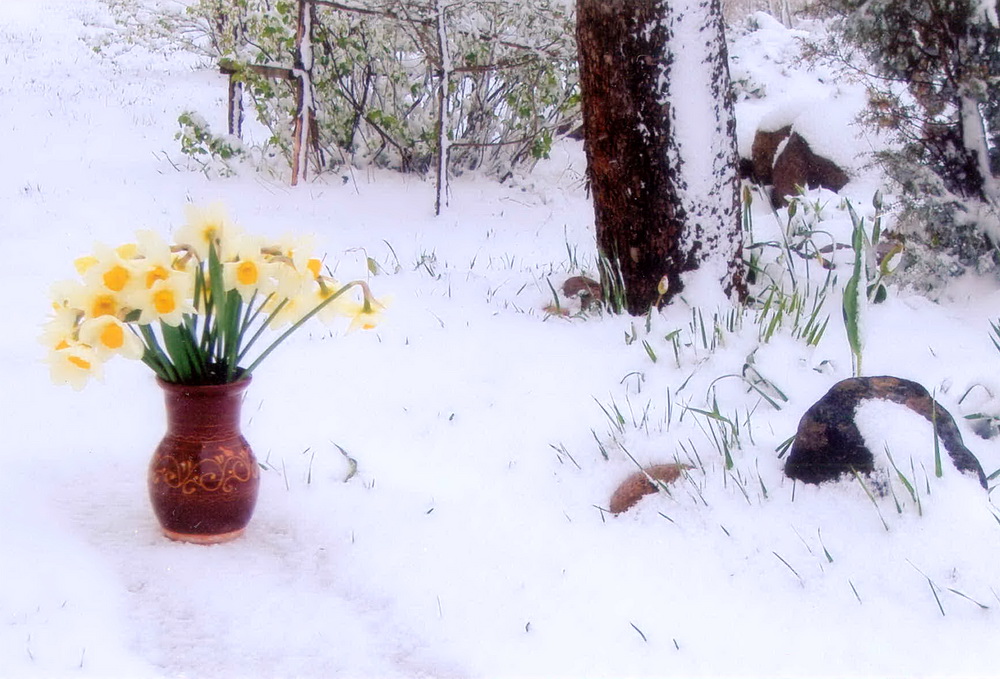
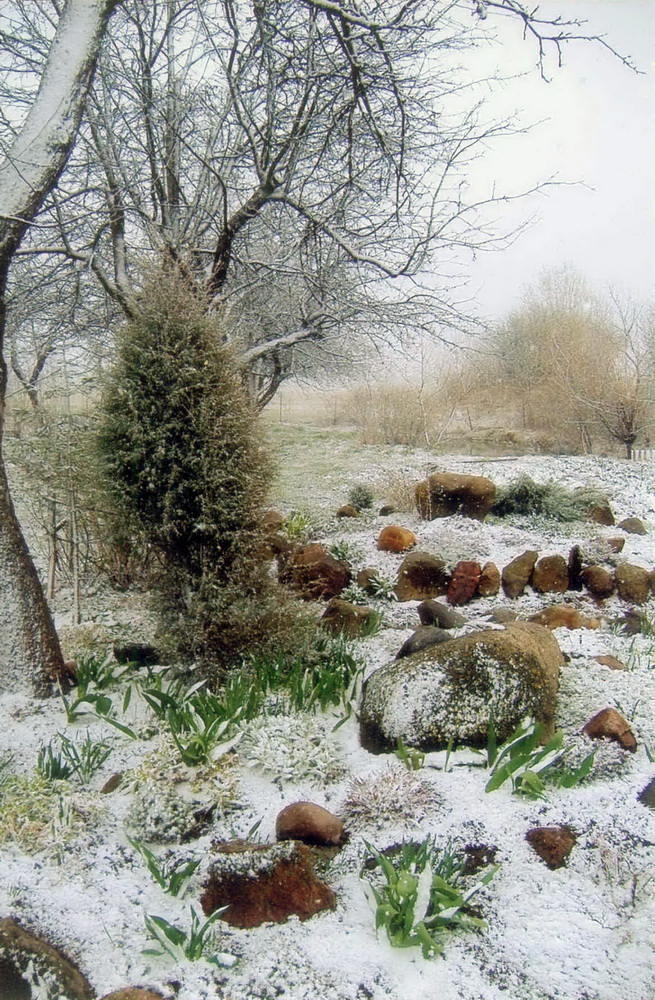

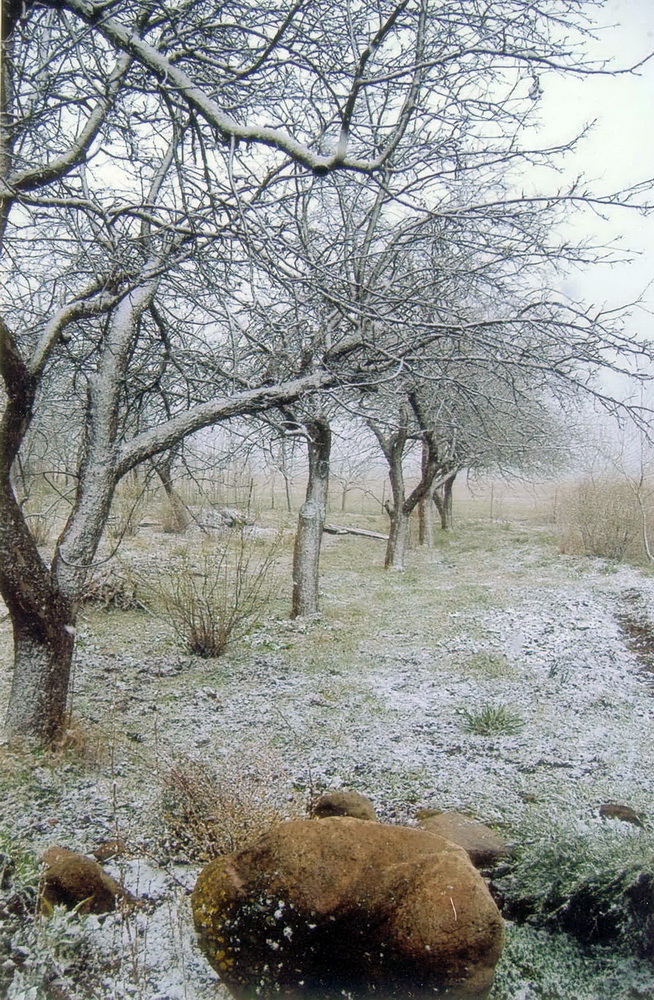
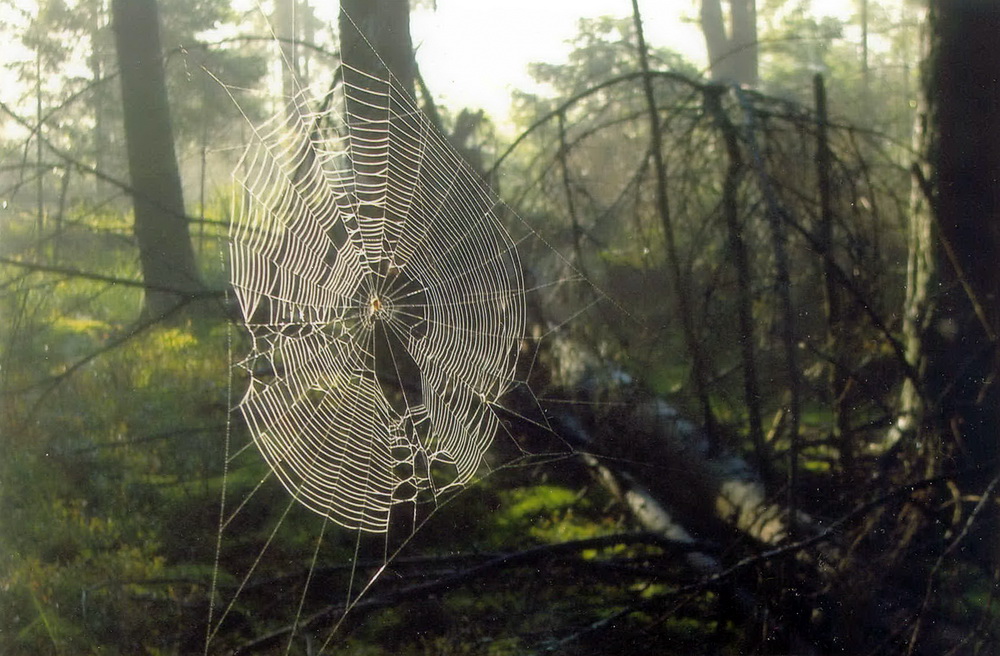
“Kiesner calls me, “Zhanna, tee-hee, but we all quit!”
I understand that Aliaksandr Ryhoravich indirectly contributed to the creation of BAJ?
Zhanna Litvina: In 1995, already at the first constituent meeting of BAJ, we adopted the first protest statement against the expulsion of such newspapers as Narodnaja Volia, Imia and BDG from the printing works. Then, the newspapers moved to Vilnius for printing because at that time there were no such restrictions at the border, and they could be freely brought to Belarus. Next, December came, and there were white spots in newspapers in the place of Antonchyk’s anti-corruption report… But then Zviazda, Sovetskaya Belorussiya and some other publications were printed with white spots – they still had courage. There was a ban on printing the report, but the editorial offices decided to leave the white spots. At that time, there still was no such separation: ours – not ours, us – them… The journalists were equal and cleaner. Although, they already began tightening the screws at the television without Buraukin…
And when you started your job at the State radio, was Buraukin already the boss there?
Zhanna Litvina: No, he was appointed later.
What changed?
Zhanna Litvina: First of all, the language. The [Belarusian] language was present on the radio before but with the arrival of Buraukin, it expanded unprecedentedly on the television… Hienadz Mikalajevich has a unique gift of nature – the ability to spot a talent and to respect the talent. Under Buraukin, such people were given the opportunity for self-realization. By the way, it was already Buraukin who appointed me to the position of the editor-in-chief of Belaruskaja Maladziozhnaja. When I was appointed, I was the youngest person to occupy this position. But even ten years later, when I was fired and I was almost 40, I still remained the youngest!
And Buraukin, when he appointed you, did he give you the free hand – “do what you want”?
Zhanna Litvina: No free hand. It should be borne in mind that that the system was still solid. He simply trusted us and allowed us to do what our young team saw fit.
You once told that you were afraid to even enter Buraukin’s office. Was he that hard?
Zhanna Litvina: Always busy, always concentrated! I told him not so long ago that I had been afraid of him. Hienadz Mikalajevich laughed for a long time: “Zhanna! Be afraid? Of me?! Why should anyone be afraid of me?!”
But you were a boss as well! How many subordinates did you have?
Zhanna Litvina: When we quit, there were eighteen of us. Each of us was summoned individually and offered to stay; we were promised all kind of benefits and positions. I came in our “newsroom” across from the front desk and said, “People, you should think seriously. You are on the waiting list for housing, half of the team live in the dorms. What will you do tomorrow, where will you seek a piece of bread?” And I left. Almost everybody refused to get transferred to another office. They asked Kiesner to call Litvina. Kiesner calls me, “Zhanna, tee-hee, but we all quit!”
To me, it was a shock! At that moment, I had no idea where I could find a job… I quietly consulted people about where I could go and work as an advertising agent or an editor… But then, when they all quit, they made me a personality, and I have always emphasized that. When you are alone, it is very simple for you. And in this situation, it was like at Exupéry’s, when you need to survive and to get there because they are waiting for you. Vital Siamashka’s phrase was spinning in my head, “Zhanna, you cannot be different already…”
“This is the same as to live in a family with a wife and have a mistress at the same time”
Then, your team quit in solidarity with you as well as because they did not want to work for the State radio any longer. Today, we hear sometimes that normal people also work in odious state media. After so many years, too?
Zhanna Litvina: I think, yes. Only these people have been forced into a particular specific niche. This is the same as to live in a family with a wife and have a mistress at the same time. Although I think that there are many convinced people among journalists, especially from the new generation, who sincerely believe in all this. And perhaps, there is also a share of pragmatism there. But the cunning insincere opportunists – this is more despicable…
OK, but if a person takes a job in Sovetskaya Belorussiya after the closure of, say, BDG, and he or she says, “But I’m writing about sports (culture, arts…)”. And meanwhile, they publish “Iron on glass” at the adjacent page. Who are they, these persons?
Zhanna Litvina: I wouldn’t take such a categorical stance. Because everyone makes a choice one day. And when you talk to each one individually… For example, I had a shock about Liudmila Masliukova. She was a friend of Shchukin, in such opposition to the regime, wrote a lot for Narodnaja Volia!.. And suddenly, she finds herself in Sovetskaya Belorussiya and begins to write the exact opposite… Some people explained this by a difficult family situation. But I don’t understand such things – I believe that they are inexcusable. Here the limits of professional integrity were crossed.
You were also called to come to the other side, they promised to you that you would be hunky dory. If we reject pretentious words, what held you off?
Zhanna Litvina: I was offered to take a position in the information service of the television. But it was unacceptable in the new conditions. And it also helped that I already had an offer to lead the Belarusian bureau of Radio Liberty. Conscience. And people’s attitude. It is very important what people whom I respect think about me. Perhaps, this is my Achilles’ heel. To me, it is very important to stay who I am and not to give grounds for some doubts and mistrust.
“When the newspapers began closing down, their editors felt that they remained alone with their editorial teams”
When you headed Radio Liberty, in which conditions did it exist here in the country? Was the bureau accredited?
Zhanna Litvina: No we simply rented an apartment. But then they were serious negotiations with Shushkievich (when he was the speaker) about rebroadcasting the radio in Belarus. At that time, it just took place in Russia and in Ukraine. But Radio Liberty failed to get this authorization in our country.
In your opinion, why, during this long time of pressure on independent mass media, did they get at everybody except Radio Liberty?
Zhanna Litvina: Good question. Maybe, because it is a brand… Maybe, a habit. Should I now look for other reasons? Then, one should find out why the journalists of Euroradio received the accreditation but not Radio Racyja.
In general, those independent mass media which survived until today, how dangerous are they for the authorities?
Zhanna Litvina: This question is not how dangerous. Just think how much Narodnaja Volia experienced, for example. Iosif Paulavich (however difficult he might be), whatever the trouble was coming, anyway, he was saving his publication and managed to stay his ground. Our regional publications are also veterans. When the newspapers began closing down, they felt that they remained alone with their editorial teams. Whatever statements were adopted, whatever the International Federation of Journalists said – anyway, it was your problem, which you had to solve on your own. Perhaps, this is what causes self-censorship and caution in articles and reprints. And another thing – they are very near their local authorities, which can do to them anything at any time. It is easier for national publications in Minsk.
They got used to publications, and now there is manhunt for people who are able to seek and present information. The case of Surapin is just savage! The very fact that he was arrested for publication of his photos is unprecedented. A war with a picture! The same as policemen at rallies say in their radios, “Don’t let them take pictures”. I also was shocked at the rallies, which I call the “applause rallies” when the journalists were pressured because they had cameras – not to let them make pictures!
Why? Is it because the picture will get abroad and will again defame our “vessel”?
Zhanna Litvina: Abroad as well, yes. But also here, so that it doesn’t irritate, doesn’t stir up public opinion… Recently, however, Julija Darashkievich said that the policemen witnesses had not said during the court hearings that she had been swearing and waving her arms…
“I get a toothache from today’s FM stations”
Did you quit Radio Liberty because of Radio Racyja?
Zhanna Litvina: Yes, because Radio Racyja was my baby, and it would be incompatible further on. The first broadcasts began, and I had to take care of the new radio, with the help from Nina Barshcheuskaja, from the Belarusian service of the Polish Radio. Because the pilot programs were broadcast by the Polish Radio’s transmitter: Dzima Novikau, the current head of the European Radio, was bringing the first programs on VCR cassettes to Nina Barshcheuskaja. She seriously helped us, and I’m grateful to her for life.
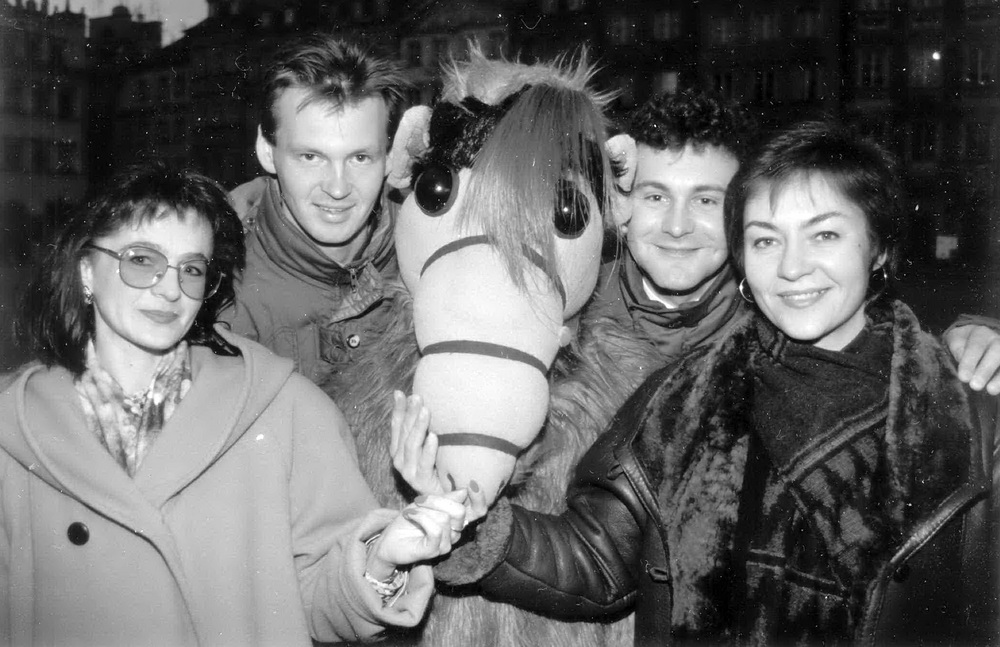
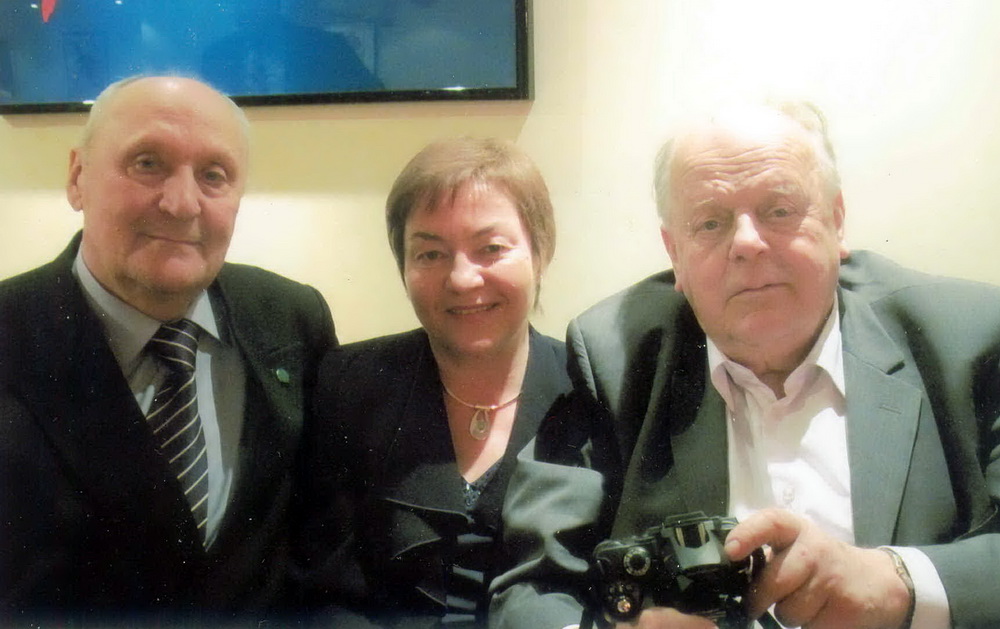
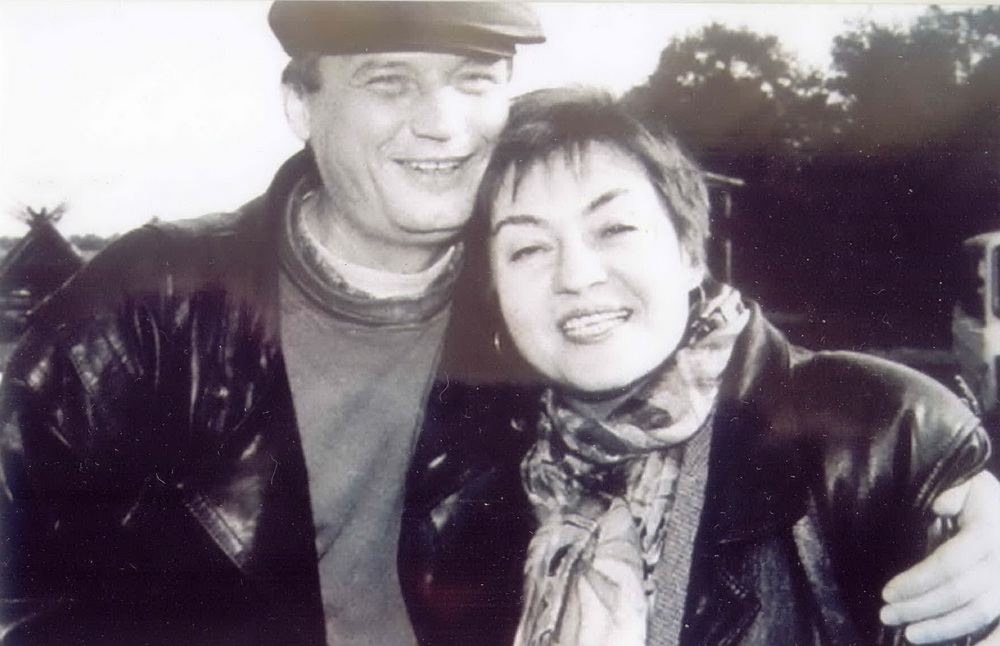
I recall Tatstsiana Mielnichuk saying that she has been missing the radio which is steadily disappearing. Do you miss it?
Zhanna Litvina: I’m in love with the radio which was mine. I don’t listen today to the FM radio, to me, they are speaking with the same voices, this meaningless barking at absolutely all the stations triggers negative and sad emotions in me. I get a toothache from that! Only Stalitsa stands out with its Belarusian language.
Speaking of the closure of Radio 101.2, you said that it had been impossible to anticipate this closure. And to prevent it? “Be careful”?
Zhanna Litvina: Then, it wouldn’t be Radio 101.2.
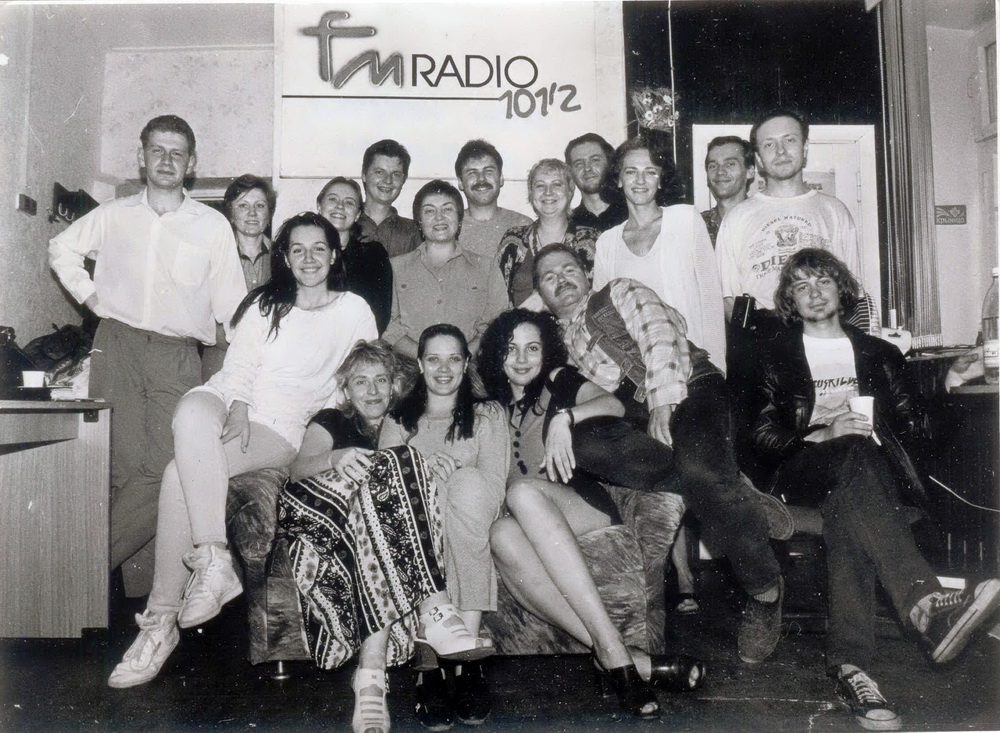
Today, when there is no possibility to listen freely, why do the three radio stations (the European Radio, Radio Liberty and Radio Racyja) need to get on the air?
Zhanna Litvina: Perhaps, it is to ensure some audio presence online… Although, many people are hardly sitting and listening to something online… Personally, I don’t have enough time for this… But hands off the holy! The radio is the radio! My heart bleeds that we have not been able to do a single real radio project here… Here, locally, in Belarus! While there is Echo of Moscow! But here they did not let us do something like this.
What is the phenomenon of Echo of Moscow?
Zhanna Litvina: They have a reasonable information policy.
Probably, they are just less stifled there…
Zhanna Litvina: For the time being…
By the way, besides difficulties with obtaining information, what other problems do our journalists face?
Zhanna Litvina: Education. In order to get it, you need to have talent. It is good that there is still some opportunity for education thanks to the Swedish Institute FOJO. But more…
That is, you don’t take into account the journalism department at all…
Zhanna Litvina: I don’t know the today’s department – this answer will be just the correct one.
Did it make you a journalist?
Zhanna Litvina: I think it didn’t. But the fact that I had this diploma allowed me to come to the journalism.
At the last Congress of BAJ you were re-elected as chairperson. Aren’t you tired of these claims that you are “sitting for so long on the throne, like Lukashenka”?!
Zhanna Litvina: Lukashenka did not create sovereign Belarus. I have a bit more “author’s rights” on BAJ (laughing)… In the morning of the Congress’s first day, I did not know whether I would stay, reserving the right to say goodbye right in the meeting room. The film of the Belarusian TV gave a strong impetus, then, there was this mailing ahead of the Congress, the ban on travel abroad – it dealt the final blow… Some are dealt with this way, others – another way… They want me to feel sickly so that I wept bitter tears and quit. No, it won’t happen this way. Although, yet in winter, I was sure that it would be my last Congress and I would leave.
And who can lead the organization?
Zhanna Litvina: Perhaps, one contender is Andrei Bastuniets. Or Starykievich. They could easily become [chairpersons]. The main thing is the office and the team behind. And why not Kalinkina?

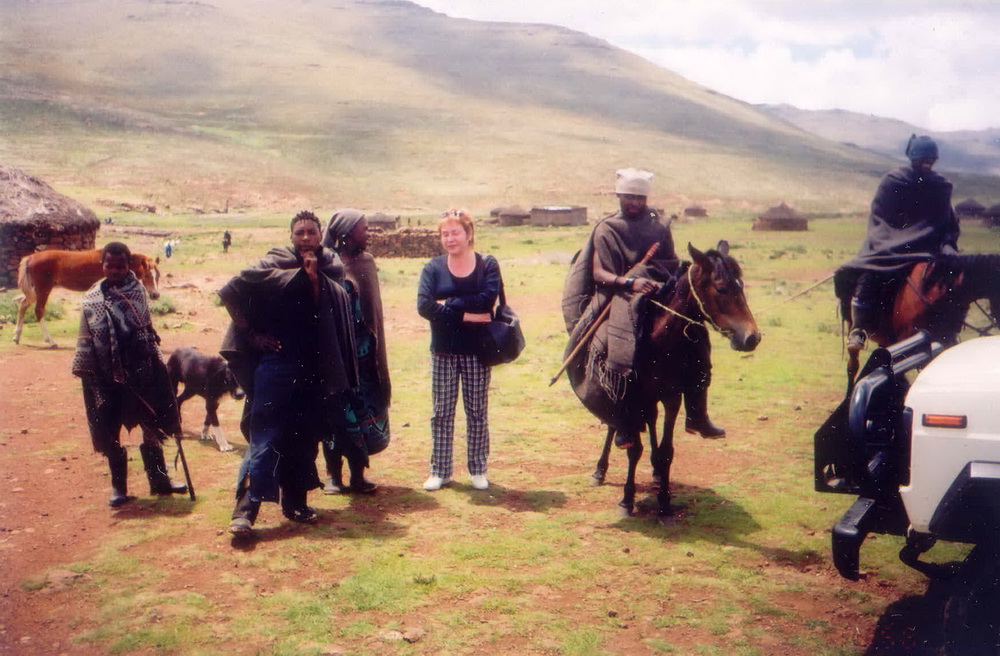
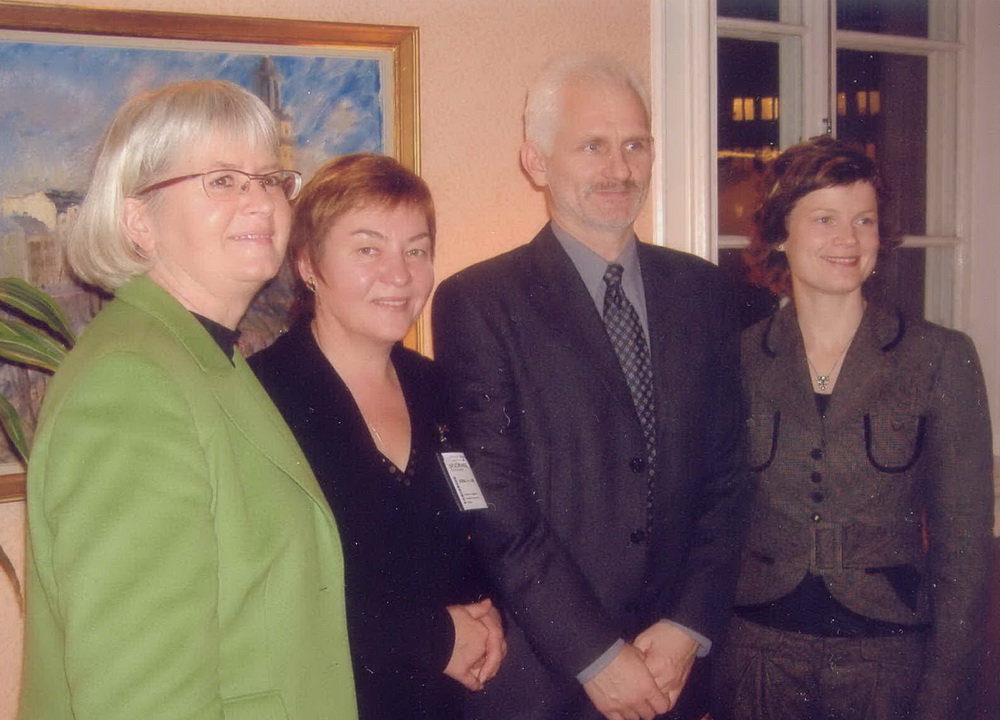
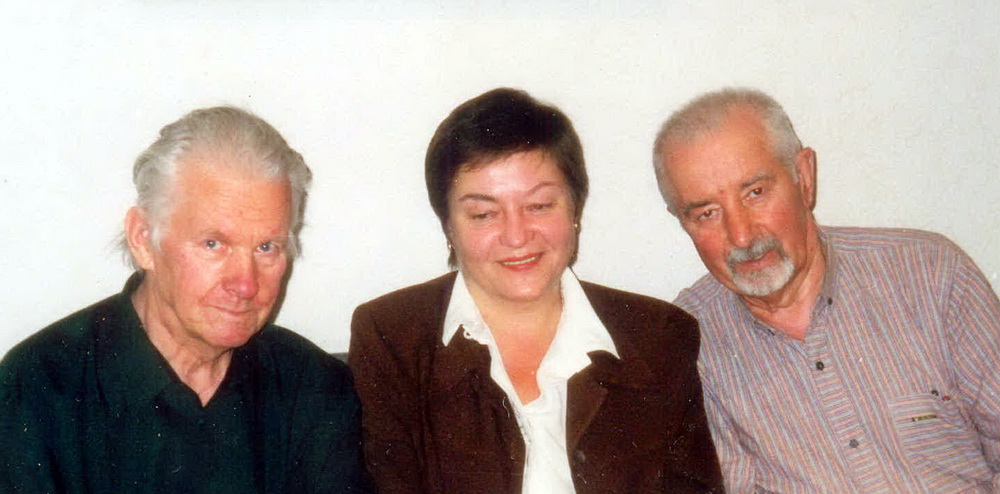
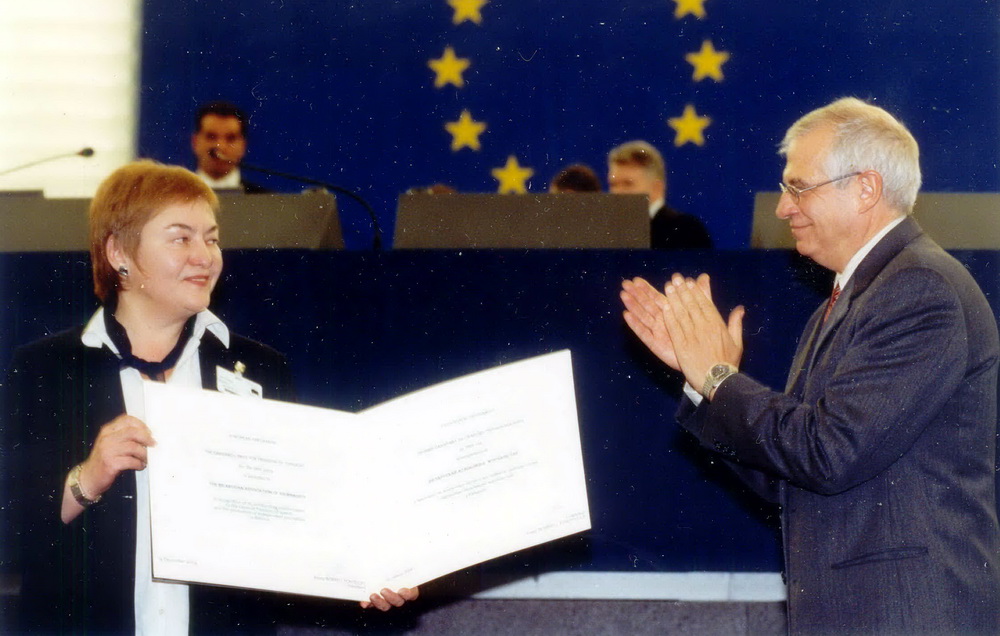
“Do you know what else Belarusian journalists didn’t do?”
Don’t you regret that you don’t work now as a journalist but only as an administrator?
Zhanna Litvina: I regret it very much! Although, it would be difficult today to picture Litvina becoming a reporter…
Would you like to lead an editorial team?
Zhanna Litvina: I’d like to be involved in a structure involved in broadcasting. Because the radio remains my unfulfilled dream.
But we already agreed that the broadcasting is dead!
Zhanna Litvina: No, the time of broadcasting is yet to come. But would I have the strength to start all over…
“Echo of Belarus”?
Zhanna Litvina: It would be nice!.. Do you know what else Belarusian journalists didn’t do? We have not written the history of our journalism of the last 20 years – at least from the establishment of the country’s sovereignty. This is our obligation – those who lived through it – to write it. This is history already, sometimes legendary, and this should not disappear. Because people go away: Ihar Hiermianchuk, Tatstsiana Sapach, Uladzimir Babaryka, Vital Taras… And they should remain in history. But what to say when even entire publications disappeared; it is a whole layer which should also remain!
It turns out that, on the one hand, it was everyday life as the journalists serve today’s society in the present time. But, on the other hand, this could be interesting because this is history already. Although I remember how we laughed a bit at some elderly professors at the journalism department who had been doing something once…
Zhanna Litvina: Rare journalistic work is “imperishable”. Because the journalism exists and develops in a very specific environment, which it reflects. The journalism is interesting today. During the Perestroika people tore to pieces Ogonyok and read it to tatters. Would you read it today with interest? Only if you really force yourself. The era is gone. I myself sometimes see how people grab Narodnaja Volia and immediately look for an article by Kalinkina on the first page. Twenty years later, and for a student of the journalism department it will be unknown people, unknown context. They will not understand how we managed to live and work in this situation. I believe they will not understand many publications by our colleagues.
If I may go back to the topic of your eternal chairpersonship and possible successors. Have you managed to build a system, which is not fully dependent on you only? Will not all the projects and agreements perish when you quit?
Zhanna Litvina: No way! There is no monopoly in BAJ while it may seem otherwise from outside. I conduct important meetings at the international level because I am the leader. In the same way, the future leaders of BAJ will conduct them. The most important is not to allow destroying the organization and not to fall apart from within. If we stay together, anyone could replace Litvina.
You said that that mailing before the Congress made you mad. But you have seen it all! How could such a stupid provocation enrage you so much?
Zhanna Litvina: The provocations are specifically calculated to catch unawares and “knock out” a person.
Also, it surprised me that in the film “Bash on BAJ” you had talked to that girl who was running after you as a small dog. Why do this?
Zhanna Litvina: I can tell you how it happened. Usually, after December 19, I don’t answer the intercom or open the door if I don’t expect anybody. An hour before I went out of the house, there was a call on the intercom. I thought, who would need anything? The, I went out to go to BAJ and afterwards – it was on December 18 – to go to the cemetery because it was an anniversary of Vital Taras’s death. I was walking absorbed in all these thoughts and memories. And then there was this effect of surprise, they hawked on me. My first reaction was – “I won’t talk to you” because I saw the microphone of the Belarusian television. It was cold, I was in a hood – and they were poking a microphone at me. Surely, Hihin had a different reaction to Radio Liberty (when he was asked to comment on the teddy bear airdrop… (smiling) I could not afford it. Incidentally, this Shumanskaja erased the end part of our interview. Because the trolley bus arrived, and the last question was, “What do you think: even my classmates are working in your office. Why are some working in BAJ and others on the television, as myself?” Then, I finally pulled myself together and said, “Because some are doing their profession and the others, a provocation”. Surely, it was deleted. So, that was the effect of surprise… Although I pulled myself together and did not start finding out what kind of document she had there etc. What I cannot forgive myself is that I was answering in Russian.
Why didn’t you bring to the court the case of this “therapist” who was discussing your movements and nearly made a diagnosis on you?
Zhanna Litvina: I even retained a lawyer… But one thing after another… However, there is no statute of limitations in such cases so Miatsielski will still get it one day. A therapist, you bet: I wiggled my fingers, so I was thinking about money!
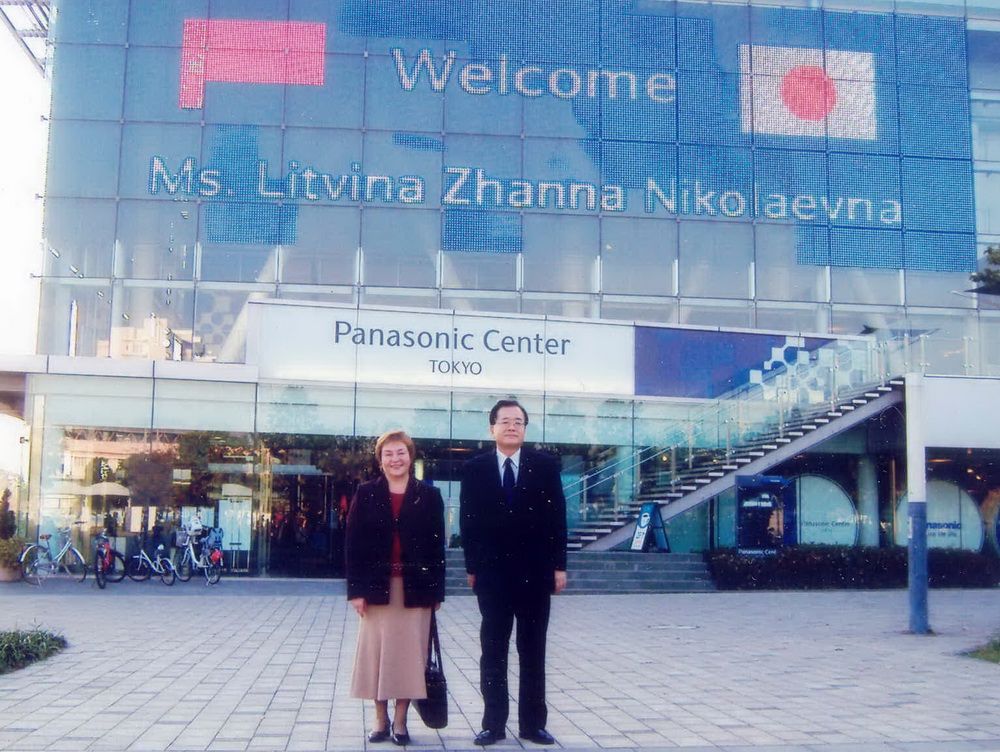
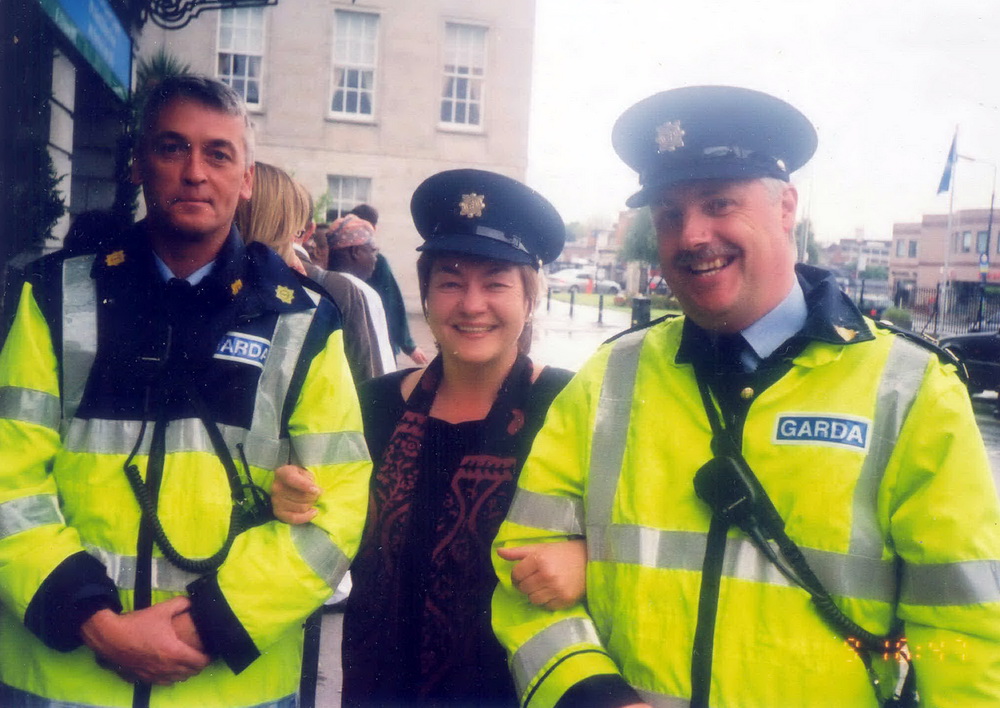
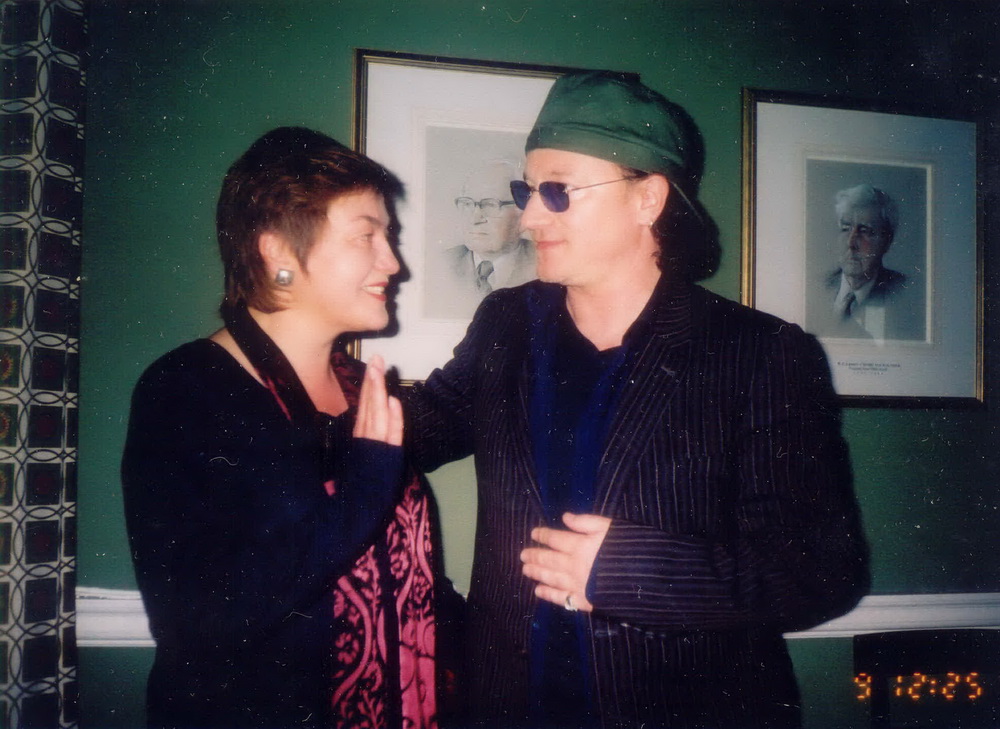
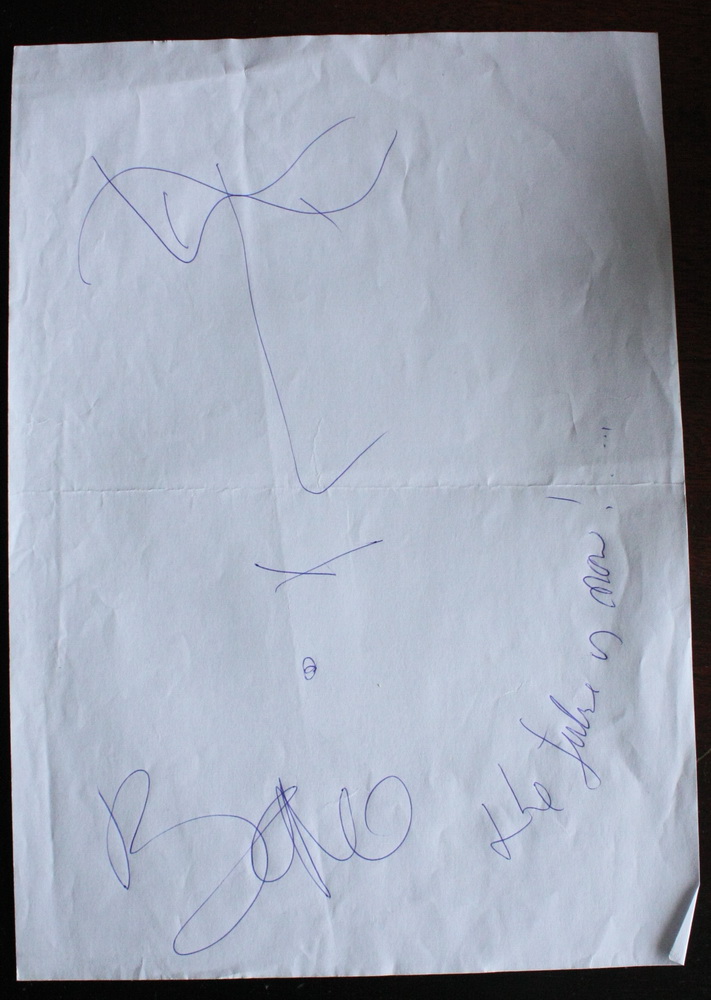
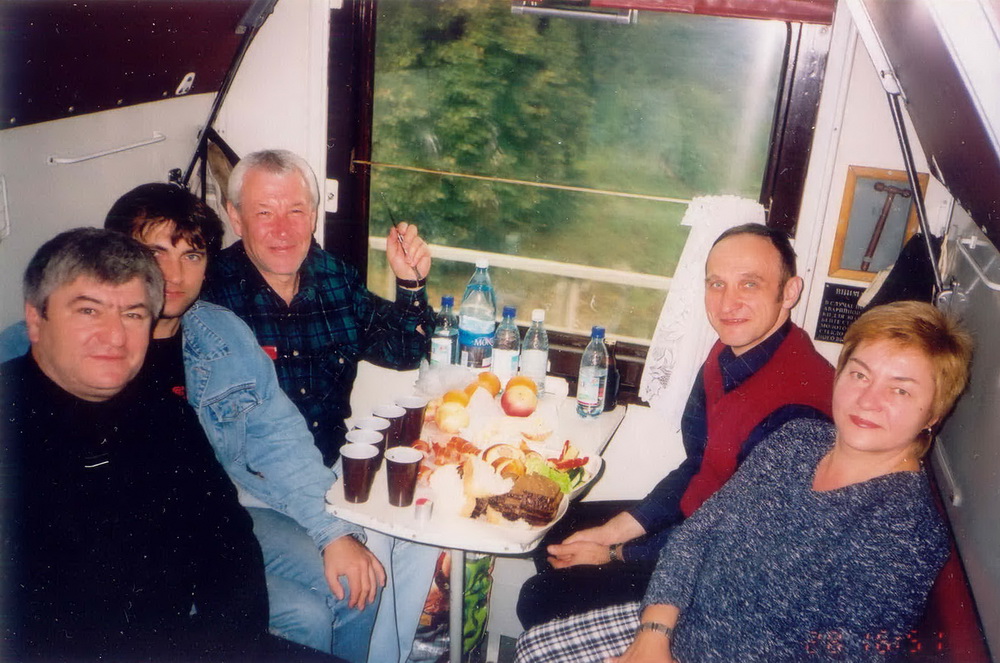
“Do you know what else Belarusian journalists didn’t do?”
Don’t you regret that you don’t work now as a journalist but only as an administrator?
Zhanna Litvina: I regret it very much! Although, it would be difficult today to picture Litvina becoming a reporter…
Would you like to lead an editorial team?
Zhanna Litvina: I’d like to be involved in a structure involved in broadcasting. Because the radio remains my unfulfilled dream.
But we already agreed that the broadcasting is dead!
Zhanna Litvina: No, the time of broadcasting is yet to come. But would I have the strength to start all over…
“Echo of Belarus”?
Zhanna Litvina: It would be nice!.. Do you know what else Belarusian journalists didn’t do? We have not written the history of our journalism of the last 20 years – at least from the establishment of the country’s sovereignty. This is our obligation – those who lived through it – to write it. This is history already, sometimes legendary, and this should not disappear. Because people go away: Ihar Hiermianchuk, Tatstsiana Sapach, Uladzimir Babaryka, Vital Taras… And they should remain in history. But what to say when even entire publications disappeared; it is a whole layer which should also remain!
It turns out that, on the one hand, it was everyday life as the journalists serve today’s society in the present time. But, on the other hand, this could be interesting because this is history already. Although I remember how we laughed a bit at some elderly professors at the journalism department who had been doing something once…
Zhanna Litvina: Rare journalistic work is “imperishable”. Because the journalism exists and develops in a very specific environment, which it reflects. The journalism is interesting today. During the Perestroika people tore to pieces Ogonyok and read it to tatters. Would you read it today with interest? Only if you really force yourself. The era is gone. I myself sometimes see how people grab Narodnaja Volia and immediately look for an article by Kalinkina on the first page. Twenty years later, and for a student of the journalism department it will be unknown people, unknown context. They will not understand how we managed to live and work in this situation. I believe they will not understand many publications by our colleagues.
If I may go back to the topic of your eternal chairpersonship and possible successors. Have you managed to build a system, which is not fully dependent on you only? Will not all the projects and agreements perish when you quit?
Zhanna Litvina: No way! There is no monopoly in BAJ while it may seem otherwise from outside. I conduct important meetings at the international level because I am the leader. In the same way, the future leaders of BAJ will conduct them. The most important is not to allow destroying the organization and not to fall apart from within. If we stay together, anyone could replace Litvina.
You said that that mailing before the Congress made you mad. But you have seen it all! How could such a stupid provocation enrage you so much?
Zhanna Litvina: The provocations are specifically calculated to catch unawares and “knock out” a person.
Also, it surprised me that in the film “Bash on BAJ” you had talked to that girl who was running after you as a small dog. Why do this?
Zhanna Litvina: I can tell you how it happened. Usually, after December 19, I don’t answer the intercom or open the door if I don’t expect anybody. An hour before I went out of the house, there was a call on the intercom. I thought, who would need anything? The, I went out to go to BAJ and afterwards – it was on December 18 – to go to the cemetery because it was an anniversary of Vital Taras’s death. I was walking absorbed in all these thoughts and memories. And then there was this effect of surprise, they hawked on me. My first reaction was – “I won’t talk to you” because I saw the microphone of the Belarusian television. It was cold, I was in a hood – and they were poking a microphone at me. Surely, Hihin had a different reaction to Radio Liberty (when he was asked to comment on the teddy bear airdrop… (smiling) I could not afford it. Incidentally, this Shumanskaja erased the end part of our interview. Because the trolley bus arrived, and the last question was, “What do you think: even my classmates are working in your office. Why are some working in BAJ and others on the television, as myself?” Then, I finally pulled myself together and said, “Because some are doing their profession and the others, a provocation”. Surely, it was deleted. So, that was the effect of surprise… Although I pulled myself together and did not start finding out what kind of document she had there etc. What I cannot forgive myself is that I was answering in Russian.
Why didn’t you bring to the court the case of this “therapist” who was discussing your movements and nearly made a diagnosis on you?
Zhanna Litvina: I even retained a lawyer… But one thing after another… However, there is no statute of limitations in such cases so Miatsielski will still get it one day. A therapist, you bet: I wiggled my fingers, so I was thinking about money!
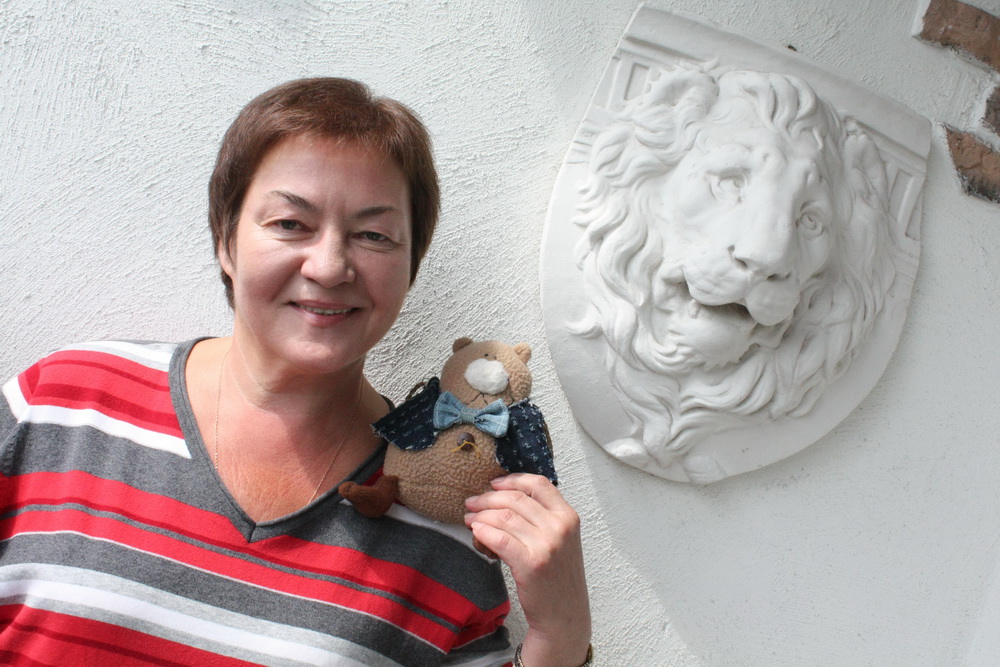
Here just a few items from the famous collection of frogs
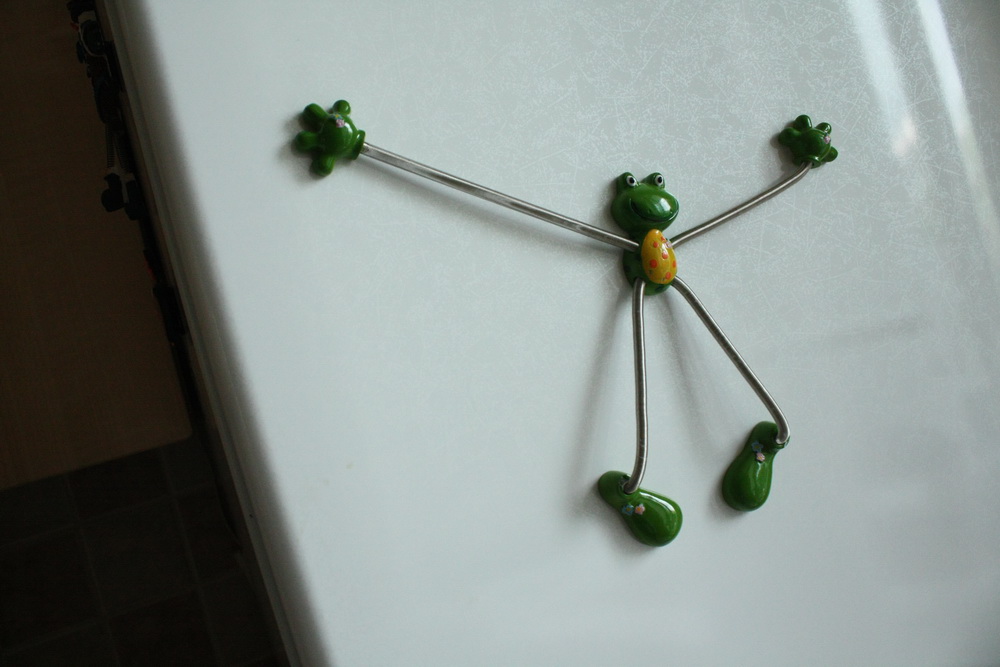
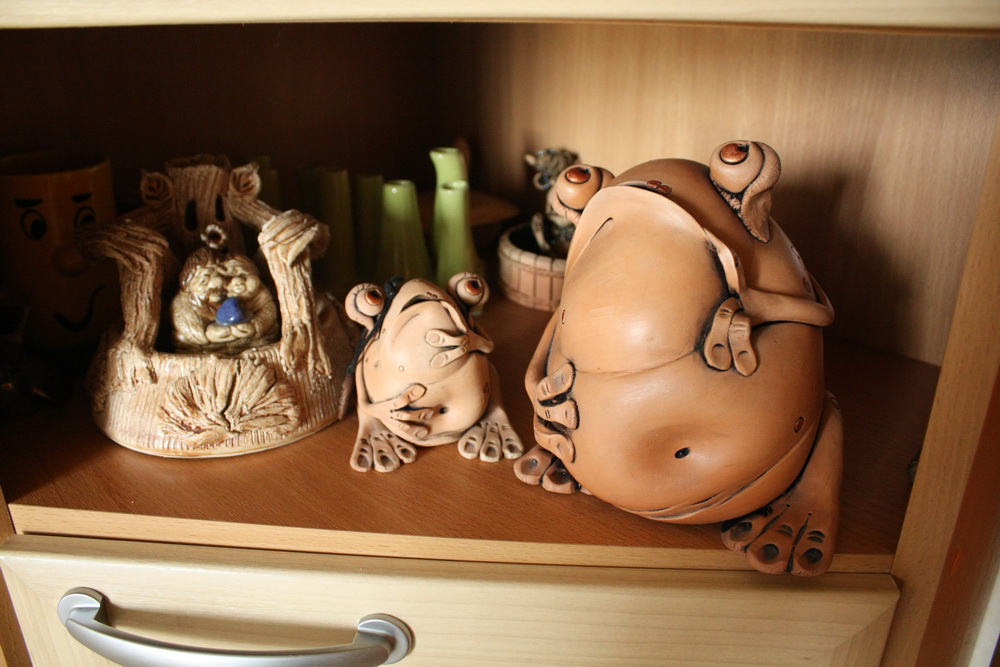
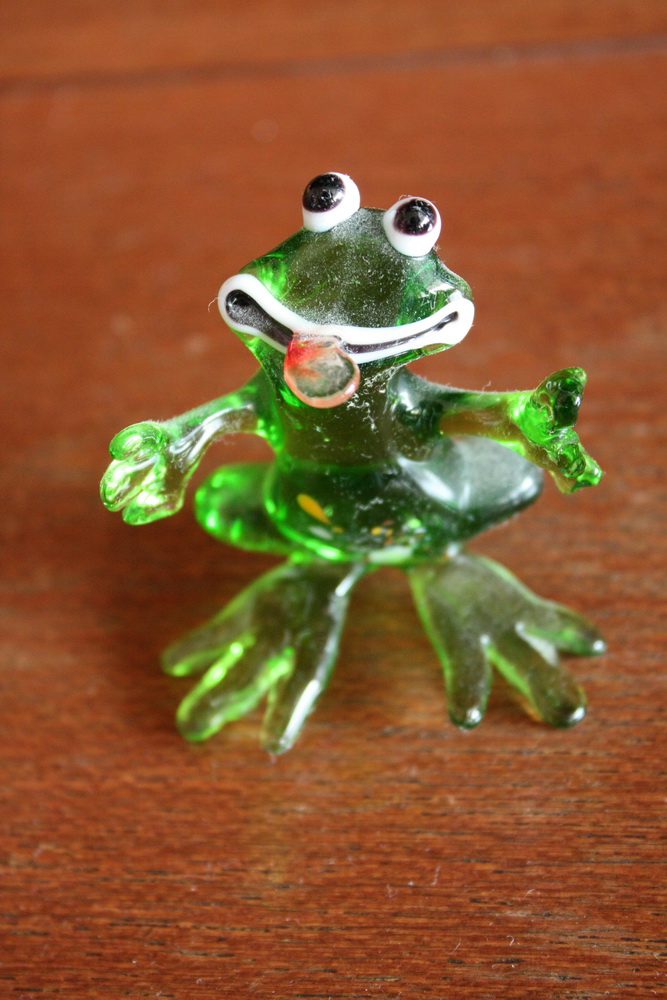
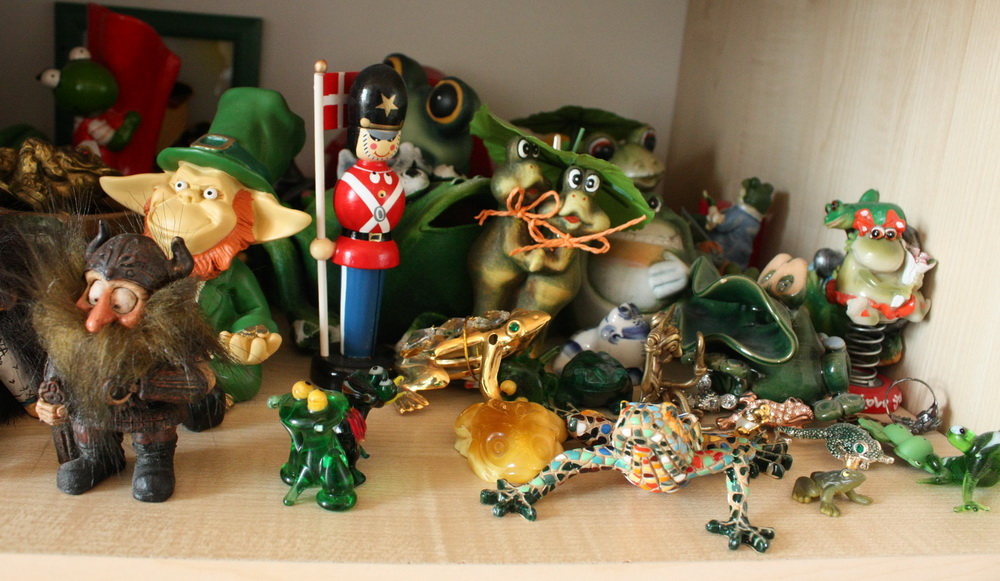
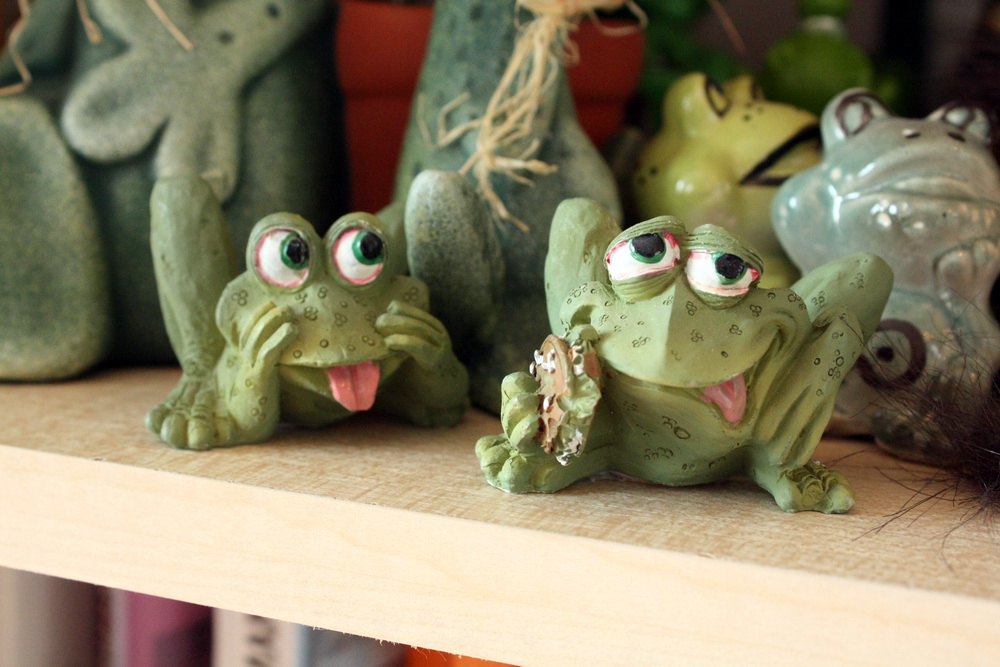
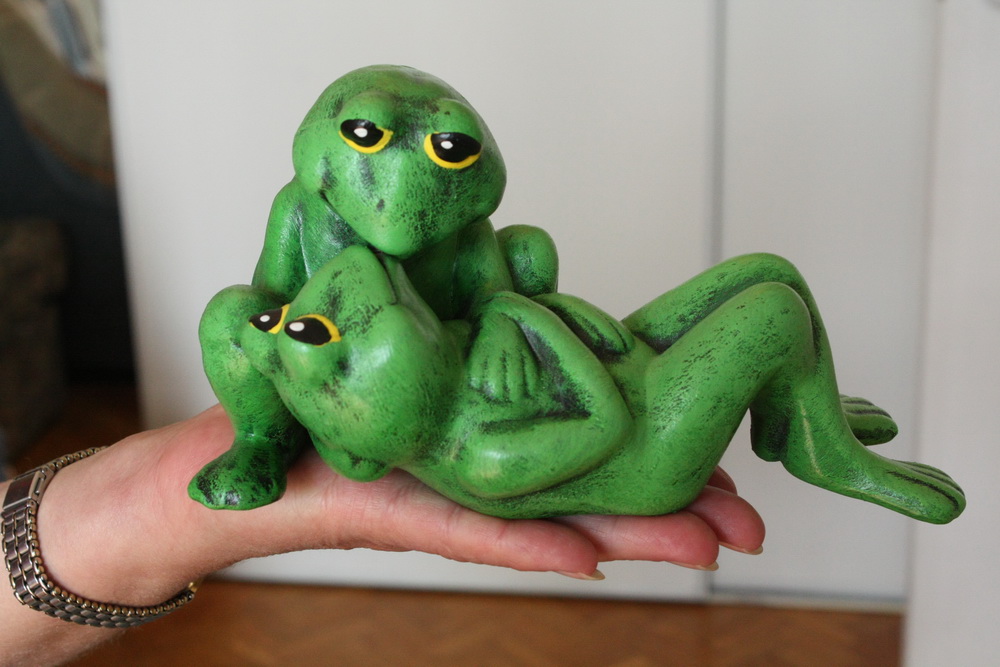
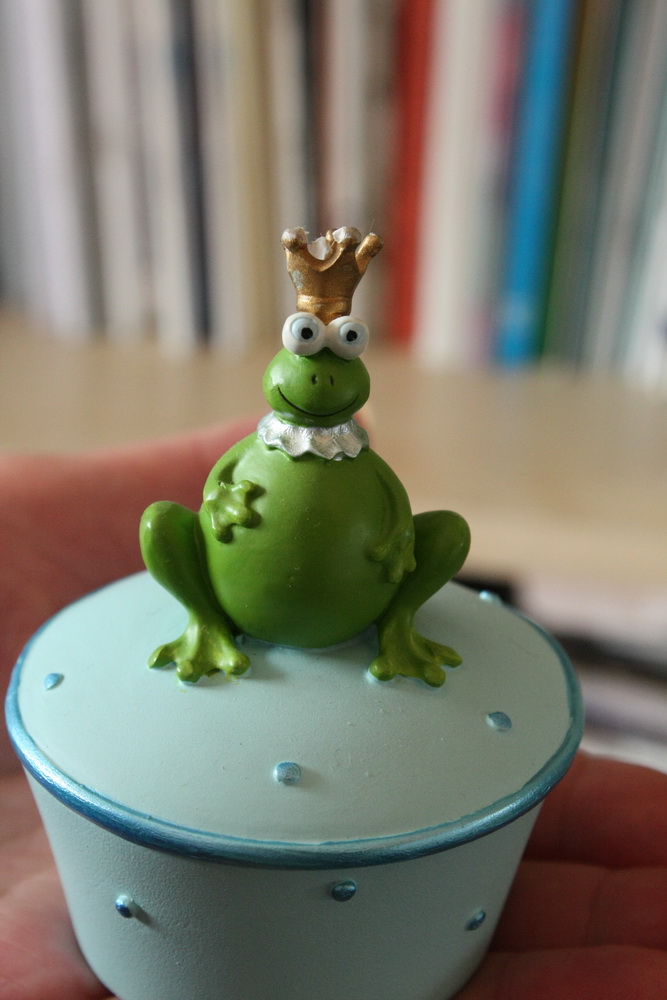
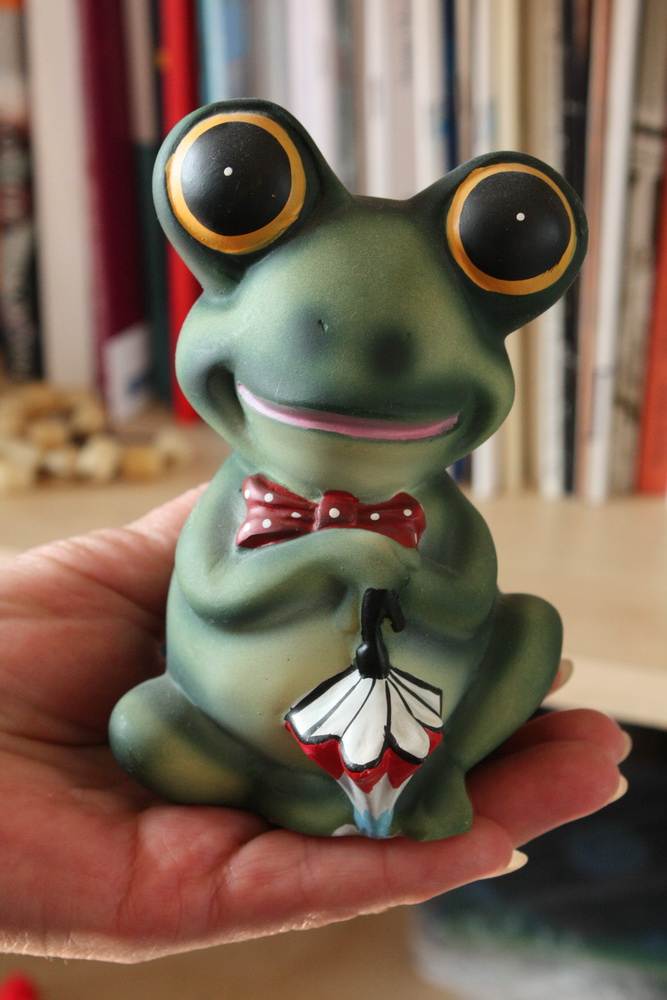

“I am terribly afraid of my birthday”
As I understand, two things are related to your birthday. The first one, you were born on the same day and in the same year as Lukashenka. I don’t want to discuss it the umpteenth time. The other thing is that you’re avoiding this date because misfortunes pursue you on this exact day…
Zhanna Litvina: I am terribly afraid of this day. When it starts, I usually think of one thing – let it be over as soon as possible so that no trouble happens again. It started when I was 30 years old. On the eve of my birthday, my predecessor in Belaruskaja Maladziozhnaja, Editor-in-chief Ivan Iosifavich Sadouski, had an accident. He died just on August 30. The closure of Radio 101.2 also happened on August 30, at the end of the day, at about 4 pm. We receive a letter from the Ministry of Communications, which informed us that our transmitter was creating some technical interferences. Although the ministry itself had placed it in that location and they were servicing it. But they warned us that August 31 will be the last day of Radio 101.2’s broadcast… Just recently, three years ago, on that day, Dzima Parfinovich died, a true friend and an employee of our office. Such “coincidences” scare me.
Rank-and-file members of BAJ knew Dzmitry Parfinovich as your driver. Did he have other duties?
Zhanna Litvina: We met with him a long ago in an absolutely incredible way – when we were indeed looking for a driver. In 1995, when the organization was just being created and we registered BM-Infarm JSC, I was riding in a taxi and I absolutely haphazardly asked the driver whether he knew someone from his car company who would want to go work as a driver of a private car. He said that he would think about it. Two days later, Dzima Parfinovich called my number, we met, and since then, he was in BAJ. His incredible reliability made him a well-respected and loved person in BAJ, he became an assistant and a friend.
«To go to the city” meant «to get washed in a bathtub»!
The village of Vadapoj, where you were born – does it still exist?
Zhanna Litvina: Our house, when we sold it in 1990, was the last one – everything around it was abandoned. Vadapoj is just near Minsk, about six kilometers from Sokal through the forest.
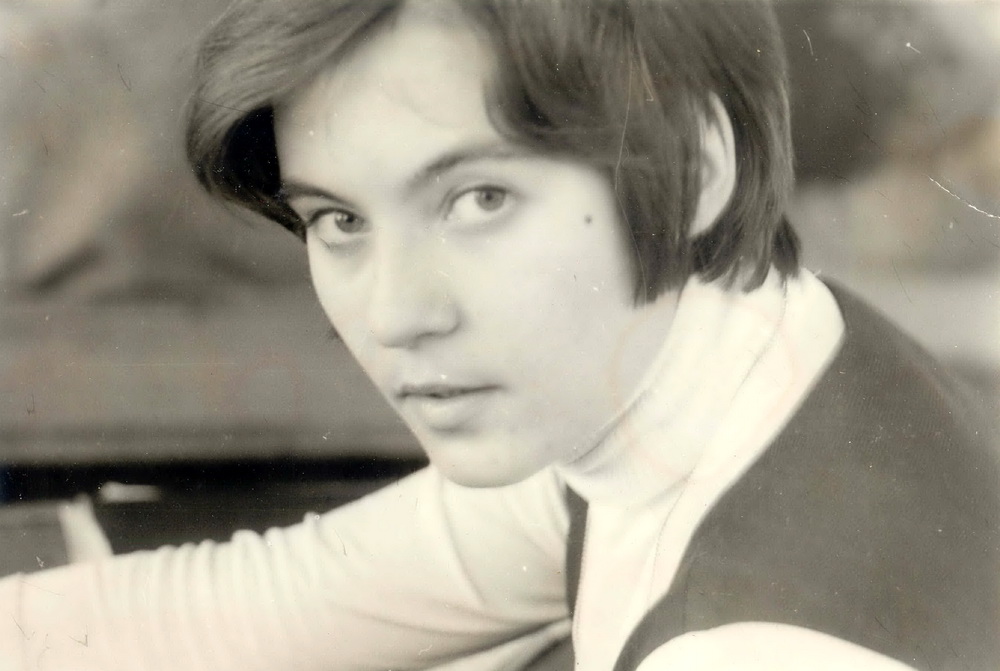
Why have you sold your parents’ home?
Zhanna Litvina: Because it was unbearable. I was jokingly saying at that time that I would love people more and hate them less sometimes if I did not have that house. You come home and see that gardeners had dismantled your chimney… The padlocks were knocked down from doors, in the middle of the house there were dirt and traces of a motorcycle… That’s why we sold this house, I may say, the native corner, for a few pennies. The new owner took it apart and took it away. It was the last house in the village of Vadapoj…
The village just on the outskirts of Minsk. Did you feel like almost a Minsk dweller or still a rustic wench?
Zhanna Litvina: I just felt that my heart was there, that I loved this place infinitely. I had a few girlfriends in the village, we had our own world, our company, and I could not imagine that it could be better someplace else… My mother’s brothers had been also bringing their children there, so we had a big company! Minsk still remained a “city”. «To go to the city” meant «to get washed in a bathtub»! (laughing)
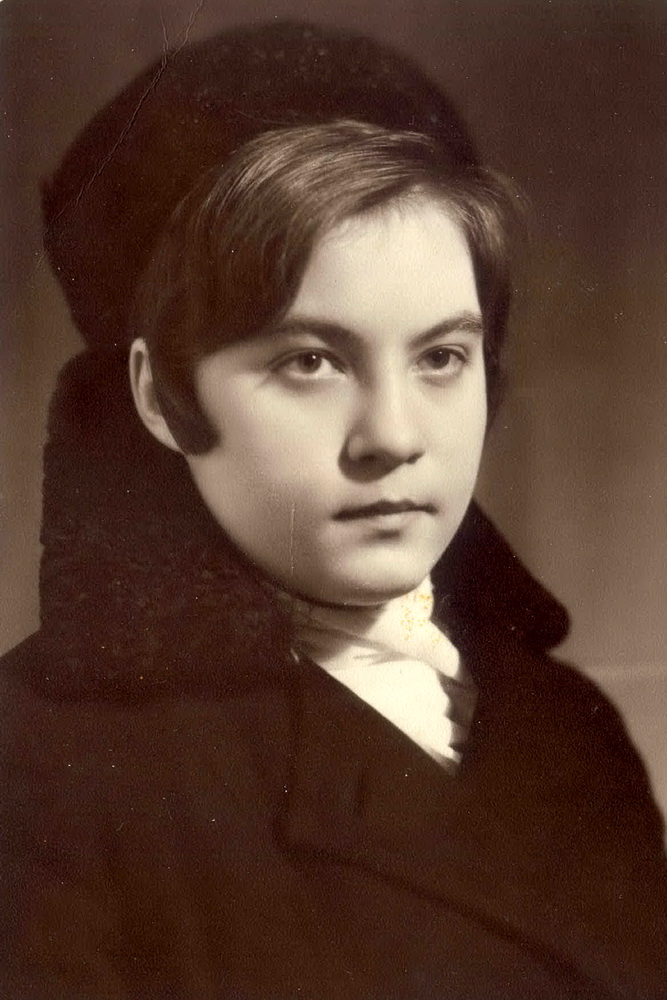
Your father was the famous artist painter Mikalaj Zalozny. And your mother?
Zhanna Litvina: She was a teacher – first, in the Belarusian and then the Russian language… And, by the way, my father’s works are exhibited in our Art’s Museum and in the Tretyakov Gallery…
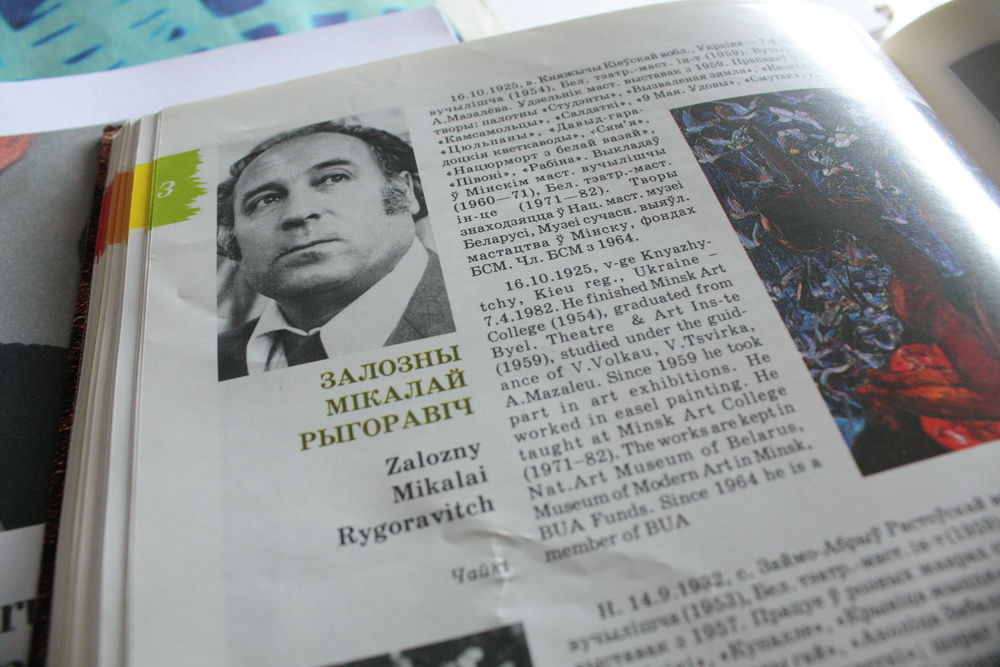
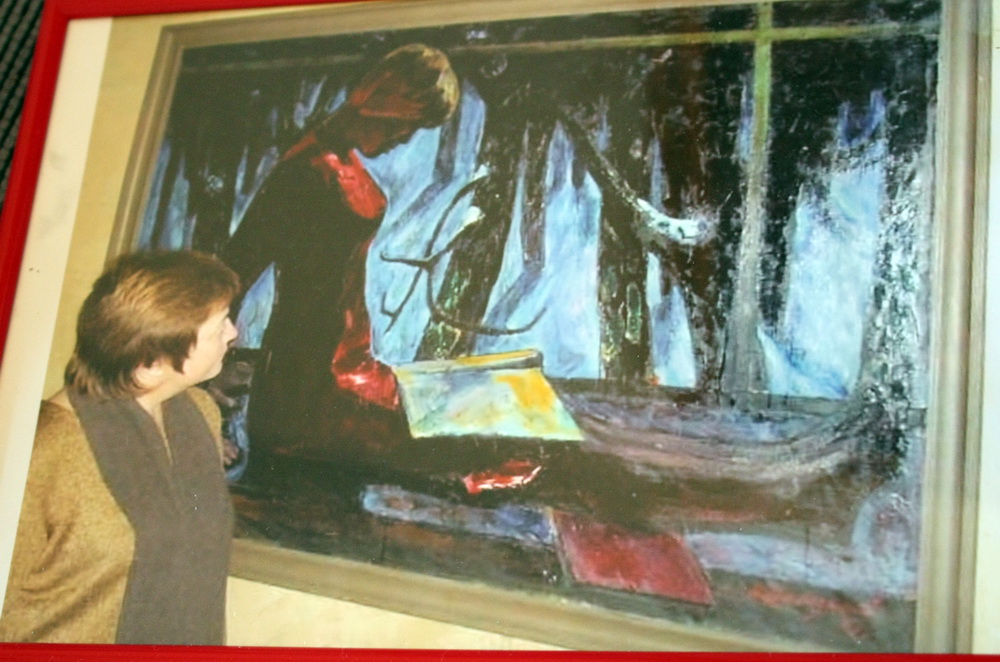
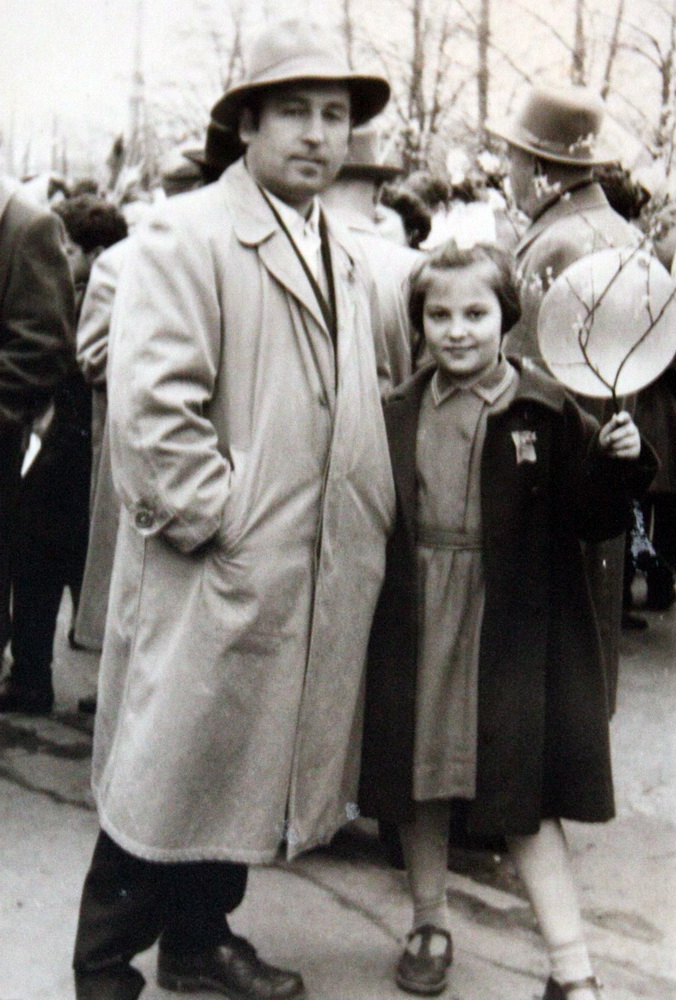
I know that your sister have also became an artist painter. And you haven’t, why?
Zhanna Litvina: God gave me no talent!
I know that your sister, Natallia Zaloznaja, moved to Brussels. How did it happen?
Zhanna Litvina: Absolutely honestly, by hard work, by talent – it happened 12 years ago. Before that, they tried to live in the Netherlands but came back home. After that, a gallery manager invited some Belarusian artists to go live there on quite unfavorable terms. He had a few galleries and he guaranteed a certain income on the condition that the artist painted a certain number of paintings a year. Then, he got tired of this business and he closed down his galleries. But my relatives were able to gain a foothold there and they stayed. Now, their works are sold there in galleries, they don’t stand on a square with a pencil. Though, certainly, as the crisis began, people began to buy art last of all…
Don’t they speculate that they came from a “bloody regime”?
Zhanna Litvina: God forbid!.. Art does not have a nationality there… By the way, I, as the chairperson of BAJ, never give any recommendations to doubtful refugees. I’ve seen enough how my sister and her husband were getting on their feet. Even now, they have difficulties to survive from the financial point of view: they repay loans to give education to their son… So, some are offended that I don’t give reference letters to “political migrants”. Because there are true and false victims.
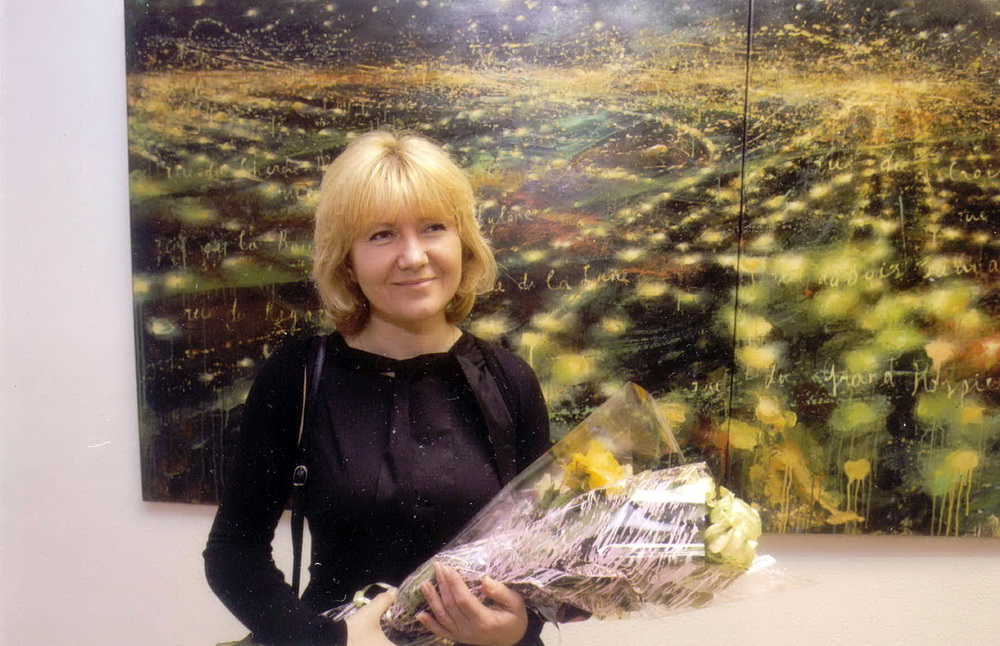
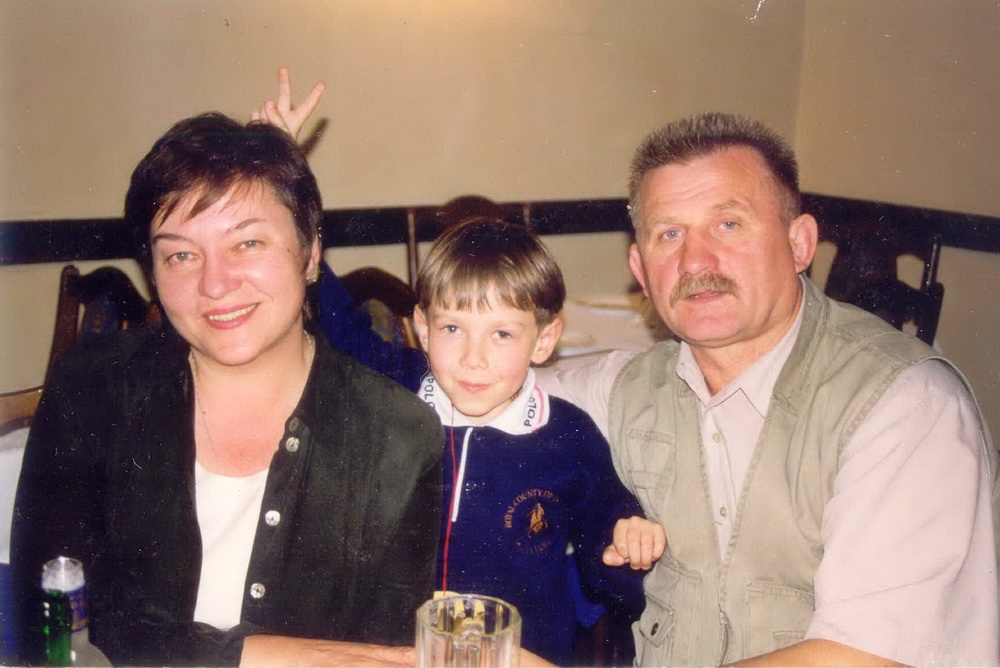
“I know what it means “the soul hurts” – for me, it is absolutely physical feel”
Please pardon the tactless question but I know you had a brother.
Zhanna Litvina: Yes, I also had a brother, and when he was 10 years old, there was a terrible tragedy and he died… Nobody happens to have a stellar life, without tragedies, without losses. There are losses when your soul hurts. I know what it means “the soul hurts” – for me, it is absolutely physical feel, when I feel a pain in the solar plexus. This is the hardest pain, it goes away only with time. That tragedy, the death of the brother is one of such losses. And my family lived with this loss all the time as long as my mom and dad were alive. It is not true that it subsides over time – a trace remains. Sometimes, I think that people, who are yet to experience such tragedy, have not undergone their probe from God. People who have experienced such pain are more sincere in life, they are able to empathize and to respond to misfortune and pain of another person.
Zhanna Mikalajeuna, how did it happen?
Zhanna Litvina: …The tragedy happened in 1959, I was 5 years old then. Children almost the same age as my brother secretly took a gun from adults in the hunting field. One may call this an accident… But it remained for the entire life… Nobody aimed at him on purpose, it was an absolutely random bullet – right through to the heart… Although I was very young, I remember how my father brought my brother from the forest in his hands… And I remember how he was hugging me strongly, simply squeezing me then…
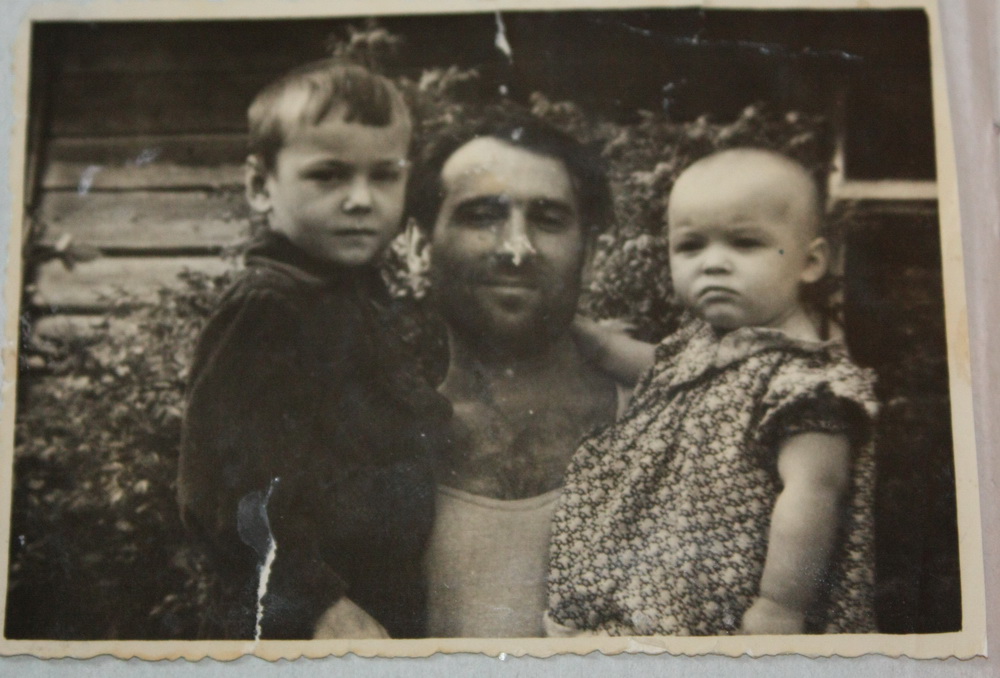
“For 18 years, I lived at the corner of Karl Marx and Volodarskiy streets – now, there is a bread shop there”
Did you expressly want your dacha to be situated in a village?
Zhanna Litvina: It was clear that becoming a member of a gardening co-operative and buying a dacha there would not replace that pleasure when you are one on one with nature, when you observe it… For me, a village is a place where you stay with your thoughts, where you can dream, where you “grow back your nerves”. So, there was no question of a dacha, we kept looking for a house in a village. And then, we stopped quite by accident on the way to another place and asked whether someone was selling a house there. It was in 1990, I was the editor at Belaruskaja Maladziozhnaja.
You said that you even had to borrow money to buy this house…
Zhanna Litvina: At that time, it cost 5,000 rubles. Clearly, it was more than today’s $5,000. Recently, a house was sold in our village for $25,000, for example… My mother gave us her “funeral” money, Aliaksiej and I had our wedding gift of 1,000 rubles, we borrowed 1,000 rubles from Aliaksiej’s relatives, and in this way, we were raising money for the house. It was the same thing with the apartment. For 18 years, I lived at the corner of Karl Marx and Volodarskiy streets – now, there is a bread shop there. Six windows just above the pavement – it was our apartment for 18 years. And Litvin was coming there as my fiancé. When we got married, we lived there. And my father was still waiting when they would build the “artists’ house” on Surhanava Street. There were already five of us in the apartment, my father was at the head of the queue to move out of that basement. So, he got a three-bedroom apartment. Then, my sister got married, everyone wanted to live separately… Finally, we exchanged this three-bedroom place for smaller apartments.
I addition to collecting frogs, I see that you have a great passion – the garden-beds with cucumbers and carrots… Many are used to seeing you in a suit, at a microphone in the grandstands. And here it turns out that Litvina is digging in the ground, grubbing up weeds!
Zhanna Litvina: Here are the “familiar strangers”! (laughing) Probably, many of us have such a mismatch of the “official” image with the true appearance…
But you don’t restrict yourself to the garden-beds – do you go to the seaside?
Zhanna Litvina: Yes, but you can go to the village almost every weekend, and the holiday is very short – 10–12 days. We go to our dacha right up to the beginning of the winter, but not in the winter, because it is very cold in the house… And the garden-beds are not an end in itself, it is just a way to stay fit. To work on the garden-beds is a very sincere desire, I long for the land since Vadapoj. I am attracted to this house because I have an overload of people and problems… People rarely come to BAJ to share their joy. It just so happens that people come with problems. And so many people with problems just start to eat you out. Therefore, to escape for a few days is a salvation. Everyone needs a “donor nutrition”. I have found it here.
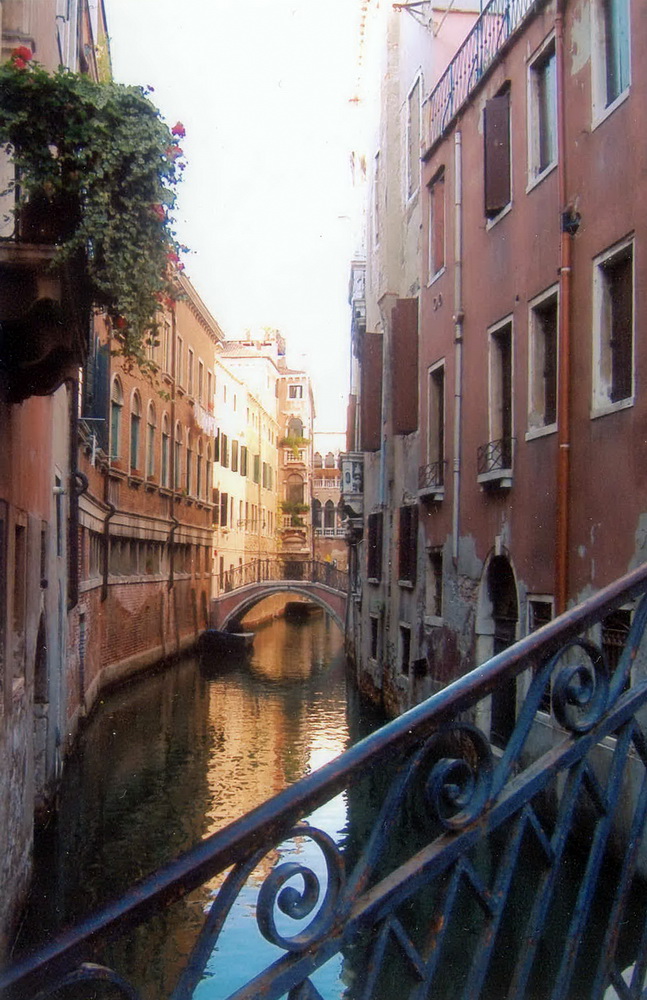

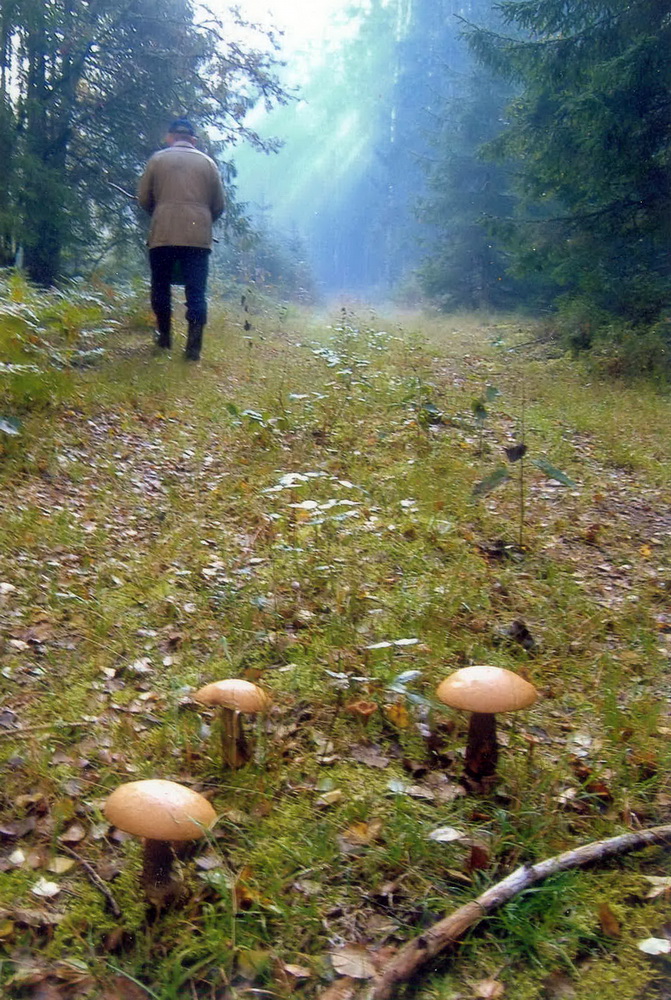
“Maybe, I would not want some of the BAJ members to be in the same place where my soul is”
It seemed to me that for you the dacha is a very intimate space where you don’t allow everyone. On what basis do you decide whom to allow? For example, have everyone from BAJ been at your dacha?
Zhanna Litvina: 1,200 people? Certainly not! Maybe, I would not want some of the BAJ members to be in the same place where my soul is. Although those people, with whom I have been working side by side, who are close to me in spirit, whom I consider being friends – they are always welcome there.
You said a very interesting thing! It turns out that there are people in BAJ whom you would rather not see at your dacha?
Zhanna Litvina: I think that such people happen in every person’s life.
It is one thing – in someone’s life, but the other thing – in an organization, which you lead.
Zhanna Litvina: You caught me!.. (laughing). For someone, I should still remain just a functionary. When there are too much sincerity and openness – it is just silly. Every person must have some piece of the soul where not all the doors are open.
What have you and your husband done at your dacha with your own hands, and what have you hired other people to do?
Zhanna Litvina: What we have been able to do without paying money, we have done with our own hands. In some cases, it was just a crowd of Litvin’s friends. For example, they poured concrete for the foundation – my job was just to cook three times a day and wash the dishes. Aliaksiej’s relatives battened the house inside; they came from the Stolin district expressly to do this.
In addition to the garden-beds, do you do something else others cannot imagine you could do? Maybe, you knit socks in front of the TV?
Zhanna Litvina: No, I don’t know how to knit nor sew. I believe that nature is the source where I accumulate energy and restore my forces. Where I can be alone.
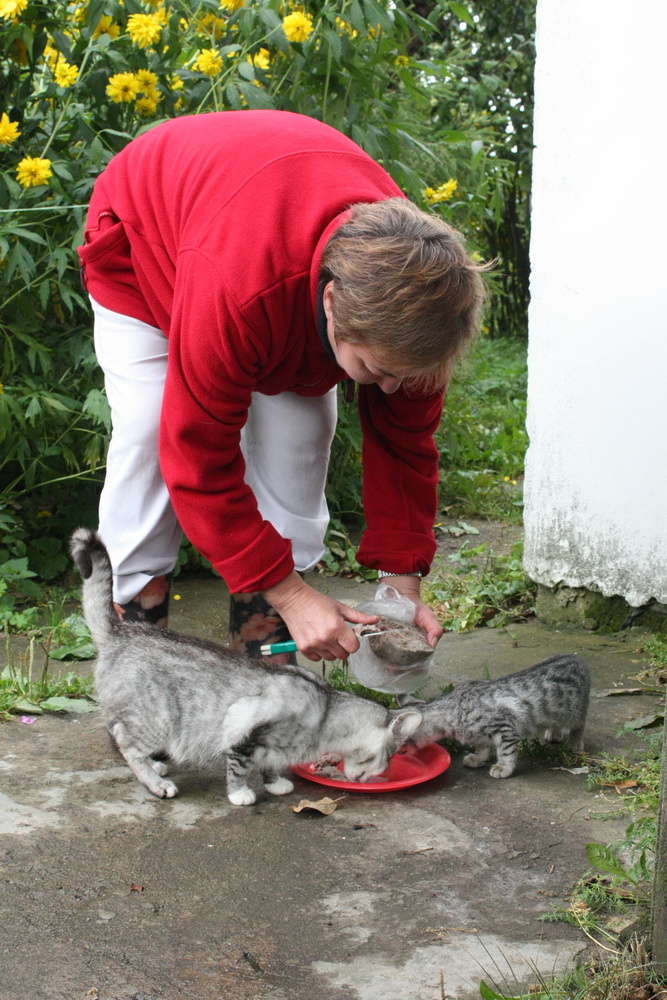
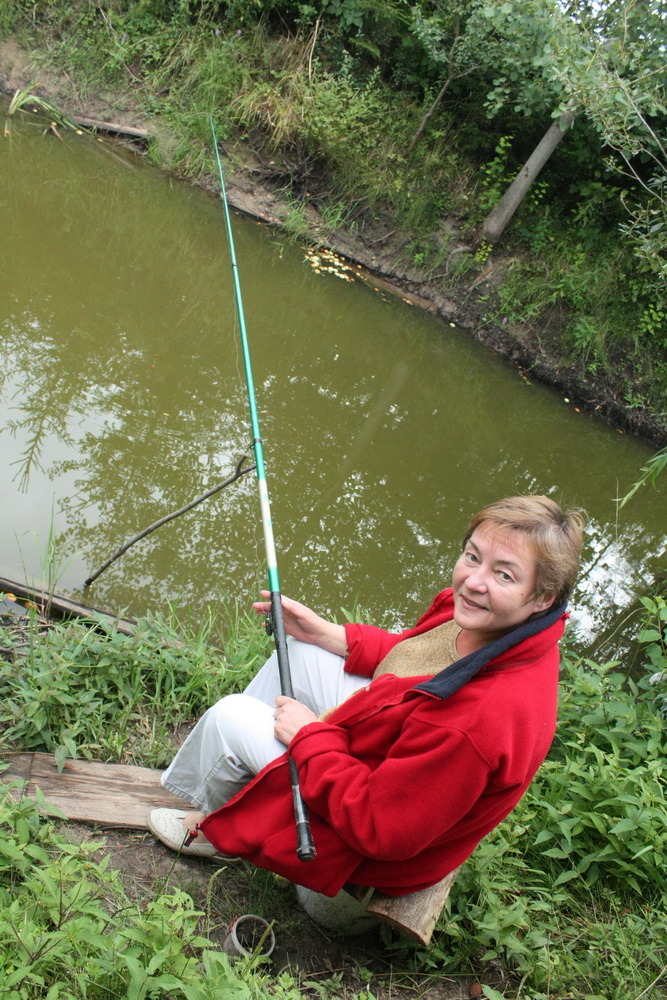
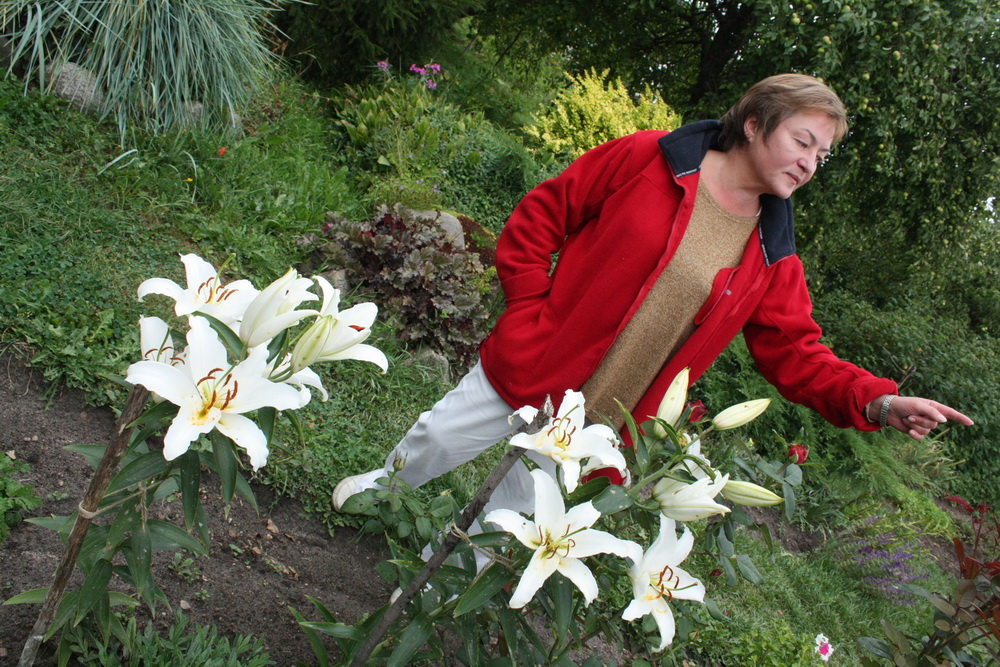
“I can’t imagine having another husband!”
I read in one of your interviews that you first heard and only then saw your husband…
Zhanna Litvina: Sometimes, I say to him that the normal people meet at a dancing party, somewhere in a restaurant or in a dorm. And you and I met in a library!.. After graduating from the history department, he served in the Interior Troops for two years. And he was still going to the library – it was the Kupalauskaja library on Volodarskiy Str., near the stadium. It was strange to see an officer in field uniform, in boots, and with a stack of books. My girlfriend and I started to giggle. And later, I spent much time in the library, and this man as well. So, this acquaintance happened by chance. We got married a year later.
Did you already graduate from the university at that time?
Zhanna Litvina: No, I got married in my 4th year of the university… And there was another small detail. When I told him my name, he replied, “Оh! My niece was born two days ago, and she was called Zhanna!”
That’s all it was interesting in your history of love?
Zhanna Litvina: It was just like that…
So what, the military men don’t court women?
Zhanna Litvina: This military man had a university behind him! And these were the first months of his service.
And why was he enlisted in the army after the university? He should have undergone the reserve training as a maximum.
Zhanna Litvina: Because it was one of the offers for his postgraduate work assignment — to do the military service. And he agreed because he did not want to go anywhere. Later, he got the position of a junior researcher at the Institute of Party History. And afterwards, over many years, Aliaksiej found enough materials in the archives for his entire life! By the way, I used to find myself in a situation, which pleased my feelings a lot. When we appeared with Aliaksiej in public, and he was told, “So, is Litvina your wife?!” Or vice versa, “So, Litvin is your husband?!” It is a thrill when two persons are developing in parallel, self-sufficiently, without interfering with each other, and live together for so long. I can’t imagine having another husband! And I thank God for this. On October 5, we will celebrate the 38th anniversary of our marriage. We don’t have children – and sometimes I think that if we had them, I would have behaved very differently. Because in our situation children sometimes become hostages – as it happened to Iryna Khalip, for example. And, like every woman, I would not be able to step over it.
Your husband is a renowned historian…
Zhanna Litvina: For over 20 years Aliaksiej has been working as the head of the Military History department of the Institute of History at the Academy of Sciences. When I was already the editor at Belaruskaja Maladziozhnaja, as soon as I got a military topic in a program, and I had doubts about what happened, and where, and when… Especially if it was about some guerilla brigade that was somewhere in the woods… I then called Litvin, and you didn’t need to look anywhere anymore, he immediately provided you with an answer. He got his memory from his mother.
So, if Aliaksiej has been working for many years already in the official Institute of History – have your activities never really interfered with his job?
Zhanna Litvina: I think they have. But the level of his qualification is very high, and the high posts were never an end in itself for him. The subject of his doctoral thesis was “Anti-Soviet military and police forces during the Great Patriotic War in the territory of Belarus”. The topic of collaborationism was fully prohibited during the Soviet era. The doctoral thesis came at a price to Litvin but he finally defended it.
How do you spend your free time together?
Zhanna Litvina: I’m awfully fond of picking mushrooms – but only together with Aliaksiej. We get up as soon as the sun begins to rise – it is a true ritual… During each trip, there is an obligatory exclamation, “Will you come to look?..” It means that you must come and look how this mushroom grows. If it is far away, I shout, “No!..” But it is near, I run to have a look…
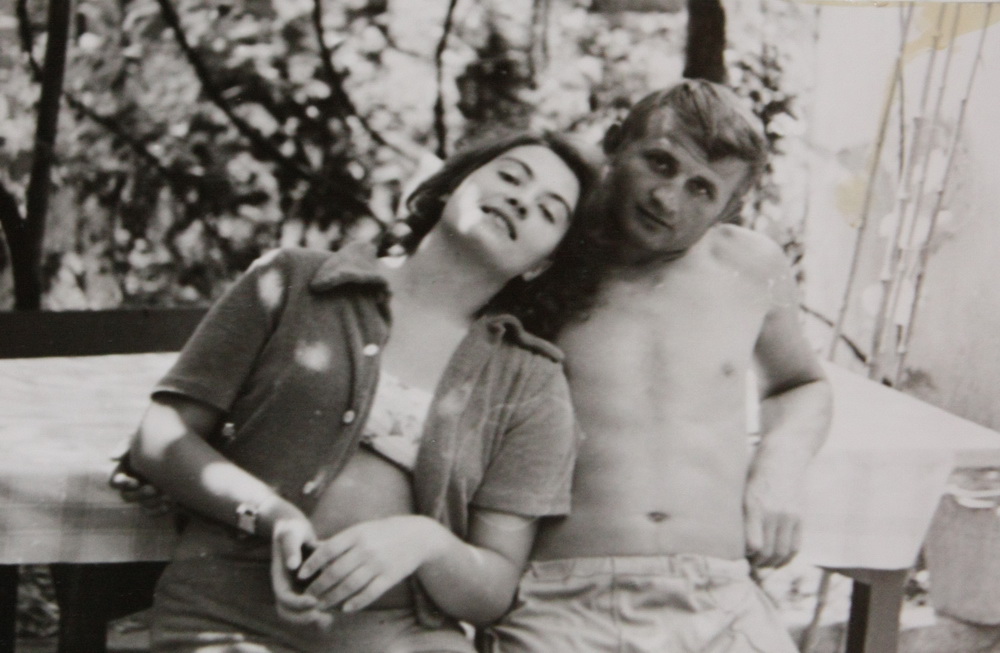
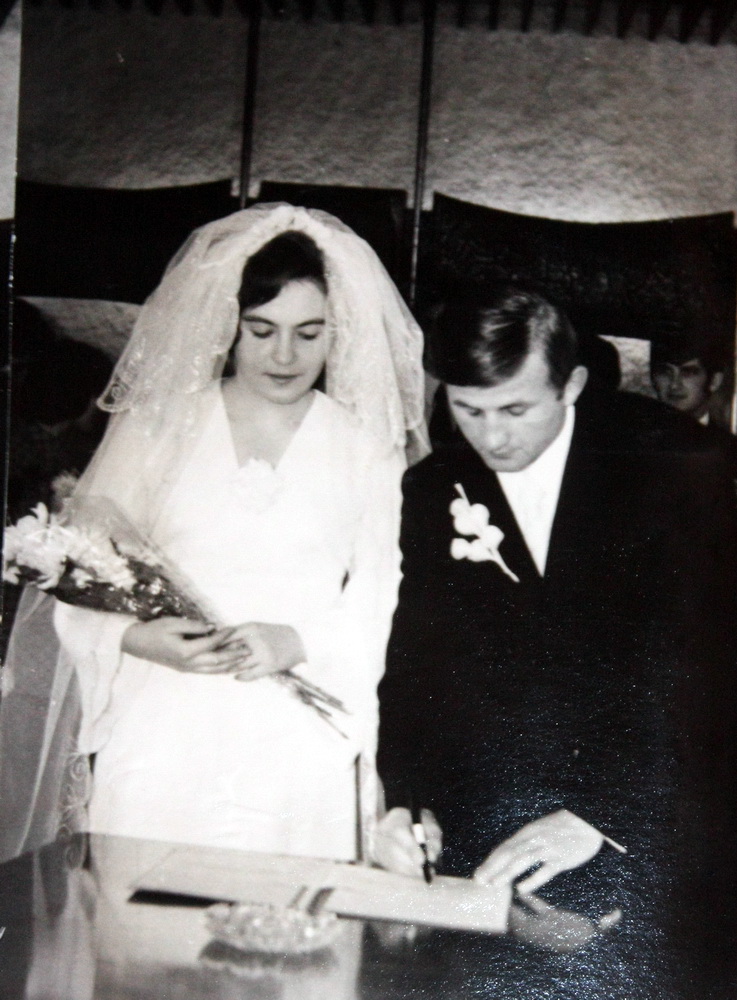
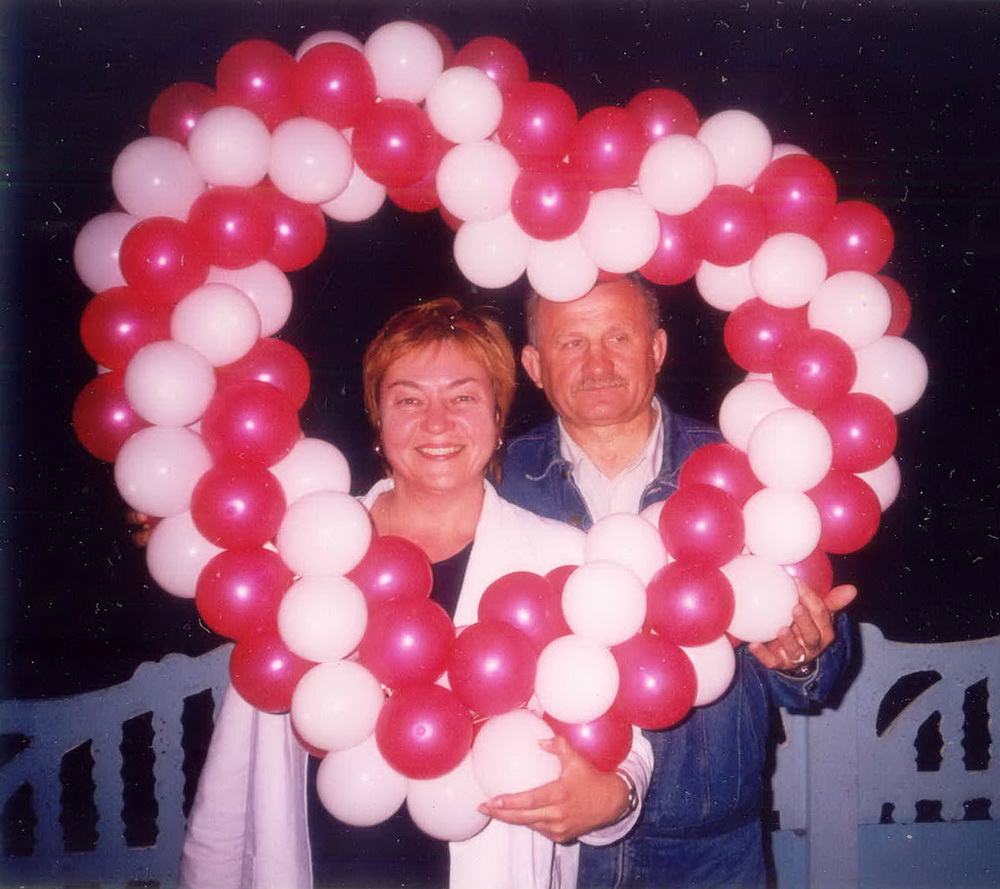
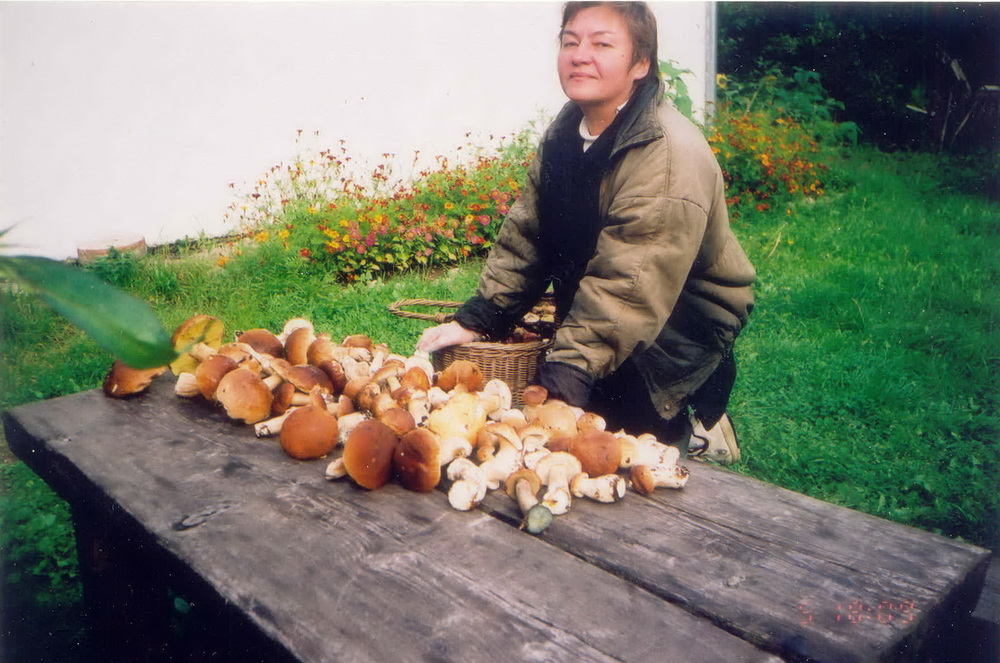
 @bajmedia
@bajmedia

